The dog was barking non-stop in the neighbours garden, it was drowning out the slow hum of traffic in the streets, nobody was attending the dog's needs or request for attention. Maybe it was lonely, locked up in the garden with no way back into the house? Who knows why it was barking and all of a sudden out of nowhere there is a shout from a man, I can't quite make it out, it sounded like he wanted someone to do something about the non-stop barking of the dog. It sounded like "sort you dog out" or something like that, but of course I could have made that up, it didn't help, the dog continued and maybe it sounded like it even got a little louder after that man's shouting.
The Unknown
Because of our conditioning throughout our lives by our parents, our teachers, business leaders, the government and ourselves, it means we can only function properly with what we’ve known.
When unknown situations arise like a global Pandemic, we can only resort back to what we have experienced in our lives so far. Our craving and clinging to how things used to be kicks in and our mind will stress continuously until such time that the known shows up again. That’s why so many people protest against lockdowns and their perceived removal of freedom.
We’re not a team!
The people in the U.K. have been remarkable. The vast majority of us have followed the rules, have respected the Lockdown, have socially distanced and continue to do so, wear our masks, have stepped up and taken the vaccine, plus many more sacrifices, including not receiving any financial support from the government whilst large corporates are receiving millions.
Other countries around the world are struggling, struggling with infections, not being able to roll out the vaccine that fast, being too optimistic early on and on top of all that have been struck by Covid variants, e.g. South African, Brazilian, Indian variants etc.
And now the promised unlocking process in the U.K. is under threat because the U.K. government have never been tough enough on incoming infections.
Namaste
On Monday 17th May, 2021, the U.K. will start to open up from Lockdown and officially we will be able to start hugging again. It’s hard to believe that we are experiencing a time when our Government has to give us permission to hug each other. I’m sure that parents haven’t stopped hugging their little ones and partners haven’t stopped hugging each other, well at least those that live together. I appreciate that older people in our society are desperate to feel a hug from their younger family members and of course why not?
The Indian Variant
We had a news conference in the U.K. today advising us that the Indian Covid-19 variant, B.1.617.2 is of serious concern and rates doubled in a week.
It sounds more like the latest iOS software release than a virus variant.
Basically this variant could cause some disruption to the U.K’s opening up plans, which start on May 17th.
Unlockdown — April 2021
A Pint of Beer with a map of the UK drowning inside of it!
The UK is unlocking
Our suffering is ending
We can spend our furlough pennies
In the shops providing they’re still there
We can’t wait to get drinking
It’s not like we stopped any time soon
There’s nothing like drinking in a pub
Or in their garden that will do
Chalkboard Thoughts — Jan 11, 2021 — Episode 10 — Predictions
During 2020 I made several predictions, albeit not publicly, and they pretty much all came true. Of course they were mainly about Covid-19, about vaccines, lockdowns and the timing of our perilous journey on planet earth.
This time I’m going to make some of my predictions public. Now, these predictions are only about the U.K., if they occur in any other country, it will be purely coincidental. Already one of the predictions will be exceeded and that’s the one about the number of Covid deaths. I predicted 100,000 deaths, but I think it will be much higher than that, more like 150,000 by the time we’re out of this. This is purely down to how the U.K. government has handled this pandemic.
Chalkboard Thoughts — Dec 21, 2020 — Episode 6 — Competence Hierarchy
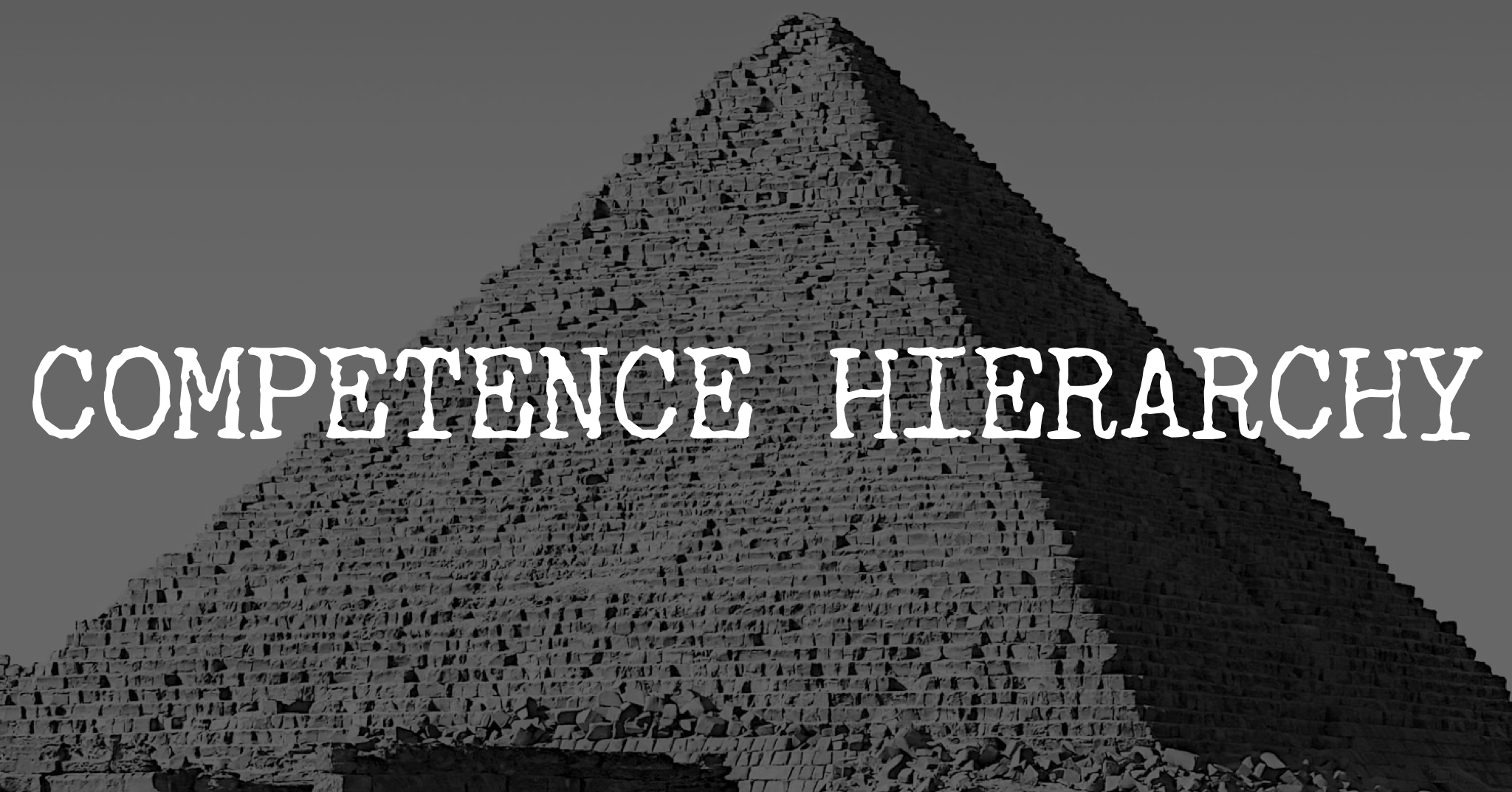
Image by Wordswag - words by
It was the week before Christmas and the U.K. Government delivered a major U-Turn on national television telling millions of people to stay at home with a new Tier 4, which in effect means a total lockdown. Basically the same as in March 2020, but this time the country has been carved up, meaning only people in London and the Southeast of England are affected.
It was during hearing this news briefing, that the the four stages of competence or the ‘Competence Hierarchy’ came to mind. It occurred to me that the U.K. Government are still in stage 1. Watch my Chalkboard thoughts video below to see what I mean.
Do They Know?

Well back in March 2020, nobody ever thought we would be celebrating Christmas like this. Everyone thought when we come out of lockdown, things will be back to normal, then the 2nd wave started on the continent and we were in total denial, it wouldn’t happen to us! Then the 2nd wave also started in the U.K. and 2nd lockdown came along after the Tier system didn’t work.
First it was mass testing, then it was the home test (which never happened), then came the local lockdown, track and trace, eat out to help out (super spreading events), schools back (super spreading event), universities back (super spreading event), travel abroad, don’t travel abroad, foreigners don’t have to isolate (super spreading event) foreigners don’t have to isolate, face masks don’t work (super spreading event).
It has been a total shambles by the UK government and other governments alike. You can’t blame them in some respect, they’ve never had to deal with this before, equally though they cut back on so many government services in previous years, that a pandemic project was closed down.
One of the few existential dilemmas the UK has faced over the last decade is Brexit. Somewhat paradoxically, in prioritising Brexit, government ministers dealt another blow to the UK’s preparedness for a threat whose consequences would be deadly. Training for key workers to manage a pandemic was stalled to make space for contingency plans around no-deal Brexit, while the UK missed opportunities for EU-level purchasing of PPE, and parliamentary enquiries into preparedness for infectious disease were delayed and eventually halted due to the 2019 election.
[embed]https://www.theguardian.com/commentisfree/2020/may/01/uk-global-leader-pandemics-coronavirus-covid-19-crisis-britain[/embed]
So it’s even more appropriate for this Christmas video produced and released by Politics JOE summing up precisely how our UK Government senior members of parliament have totally f…ed up the handling of the current pandemic inside the whole of the U.K.
[embed]https://youtu.be/xjG_VB-la7o[/embed]
I also wanted to produce this video made up from clips of statements made by UK advisors on the impact of face masks, which is another area which the U.K. government has got completely wrong.
[embed]https://youtu.be/ORpFJhyz_-4[/embed]
If only…
Chalkboard Thoughts — Dec 11, 2020 — Episode 2 — The Vaccine!
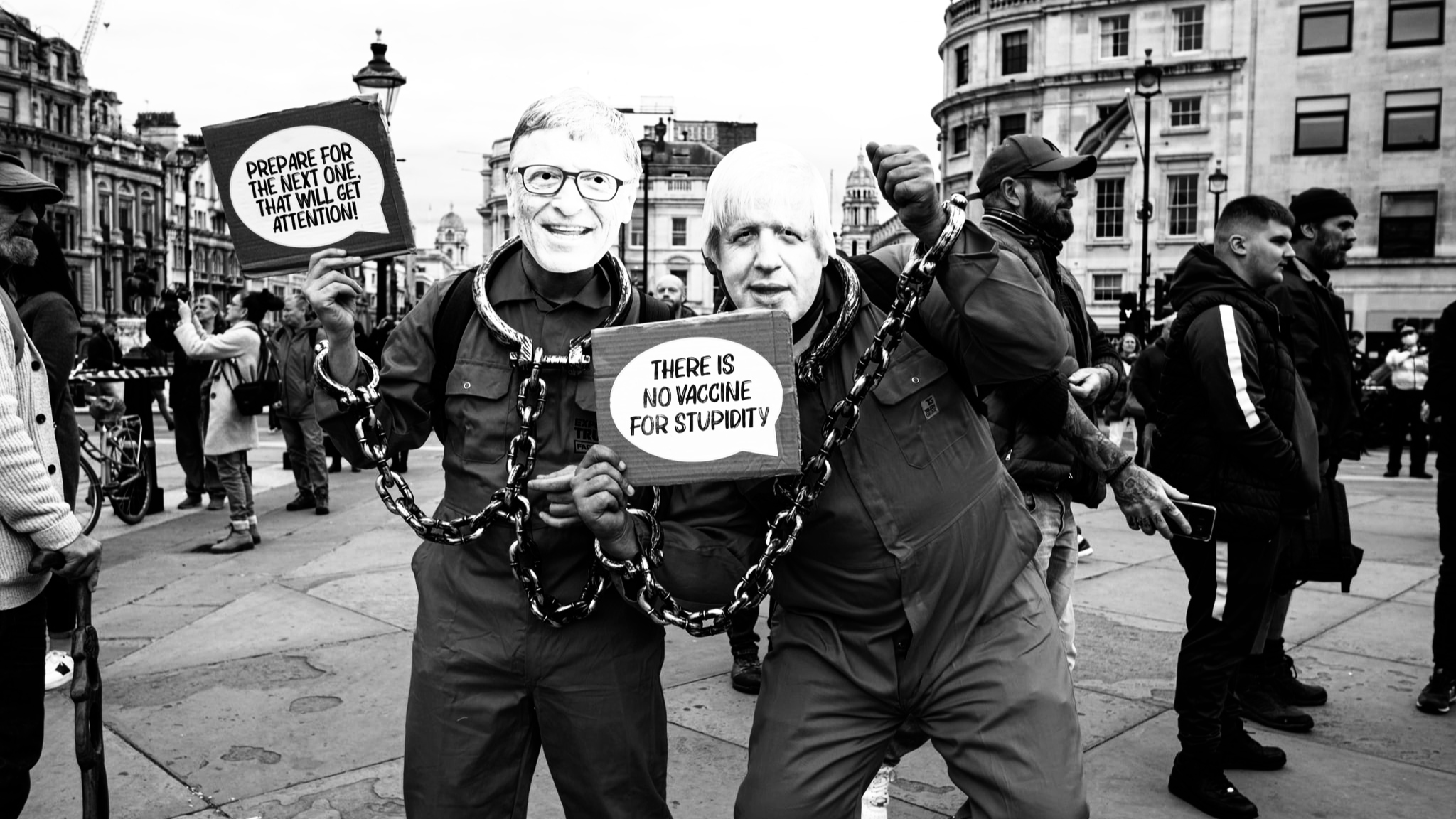
Image by Wordswag
I’ve been observing people’s enthusiasm for the vaccine, celebrating Margaret Keenan and William Shakespeare (real name) for being the first people in the world to receive the Pfizer/BionTech vaccine. As a consequence there’s this massive optimism of being able to get back to normal, whatever that might look like, whilst many nations including us in the UK, are still witnessing very high number of infections and only last night (13th March), I heard about Germany closing down, basically for Christmas and the New Year to keep infections in check. Germany was held up as a model nation for having controlled the virus, but unfortunately they also have succumbed to this dreadful pandemic.
Infected after 5 minutes, from 20 feet away!

South Korea study shows coronavirus’ spread indoors
SEOUL — DEC. 9, 2020 11:23 AM
Originally published by the Los Angeles Times, link below.
Dr. Lee Ju-hyung has largely avoided restaurants in recent months, but on the few occasions he’s dined out, he’s developed a strange, if sensible, habit: whipping out a small anemometer to check the airflow.
It’s a precaution he has been taking since a June experiment in which he and colleagues re-created the conditions at a restaurant in Jeonju, a city in southwestern South Korea, where diners contracted the coronavirus from an out-of-town visitor. Among them was a high school student who became infected after five minutes of exposure from more than 20 feet away.
The results of the study, for which Lee and other epidemiologists enlisted the help of an engineer who specializes in aerodynamics, were published last week in the Journal of Korean Medical Science. The conclusions raised concerns that the widely accepted standard of six feet of social distance may not be far enough to keep people safe.
The study — adding to a growing body of evidence on airborne transmission of the virus — highlighted how South Korea’s meticulous and often invasive contact tracing regime has enabled researchers to closely track how the virus moves through populations.
“In this outbreak, the distances between infector and infected persons were … farther than the generally accepted 2 meter [6.6-foot] droplet transmission range,” the study’s authors wrote. “The guidelines on quarantine and epidemiological investigation must be updated to reflect these factors for control and prevention of COVID-19.”
KJ Seung, an infectious disease expert and chief of strategy and policy for the nonprofit Partners in Health’s Massachusetts COVID response, said the study was a reminder of the risk of indoor transmission as many nations hunker down for the winter. The official definition of a “close contact” — 15 minutes, within six feet — isn’t foolproof.
In his work on Massachusetts’ contact tracing program, he said, business owners and school administrators have fixated on the “close contact” standard, thinking just 14 minutes of exposure, or spending hours in the same room at a distance farther than six feet, is safe.
“There’s a real misconception about this in the public,” said Seung, who was not involved in the South Korea study. “They’re thinking, if I’m not a close contact, I will magically be protected.”
Seung said the study pointed to the need for contact tracers around the world to widen the net in looking for people who had potentially been infected and to alert people at lower risk that they may have been exposed.
Linsey Marr, a civil and environmental engineering professor at Virginia Tech who studies the transmission of viruses in the air, said the five-minute window in which the student, identified in the study as “A,” was infected was notable because the droplet was large enough to carry a viral load, but small enough to travel 20 feet through the air.
“‘A’ had to get a large dose in just five minutes, provided by larger aerosols probably about 50 microns,” she said. “Large aerosols or small droplets overlapping in that gray area can transmit disease further than one or two meters [3.3 to 6.6 feet] if you have strong airflow.”
The South Korean study began with a mystery. When a high school senior in Jeonju tested positive for the virus on June 17, epidemiologists were stumped because the city hadn’t had a coronavirus case in two months. North Jeolla province, where Jeonju is located, hadn’t had one for a month. The girl hadn’t traveled out of the region in recent weeks and had largely gone from home to school and back.
Contact tracers turned to the country’s Epidemic Investigation Support System, a digital platform introduced in South Korea amid the pandemic that allows investigators to access cellphone location information and credit card data of infected individuals in as little as 10 minutes.
Cellphone GPS data revealed that the student had briefly overlapped with another known coronavirus patient from a different city and province altogether, a door-to-door saleswoman who had visited Jeonju. Their connection was a first-floor restaurant on the afternoon of June 12 — for just five minutes.
Authorities in the city of Daejeon, where the door-to-door saleswoman was visiting from, said the woman did not tell contact tracers she’d visited Jeonju, about an hour’s drive away, where her company held a meeting with 80 people on the sixth floor of the building with the restaurant.
Lee, a professor at the Jeonbuk National University Medical School who has also been helping local authorities carry out epidemiological investigations, went to the restaurant and was surprised by how far the two had been sitting. CCTV recordings showed the two never spoke, or touched any surfaces in common — door handles, cups or cutlery. From the sway of a light fixture, he could tell the air conditioning unit in the ceiling was on at the time.
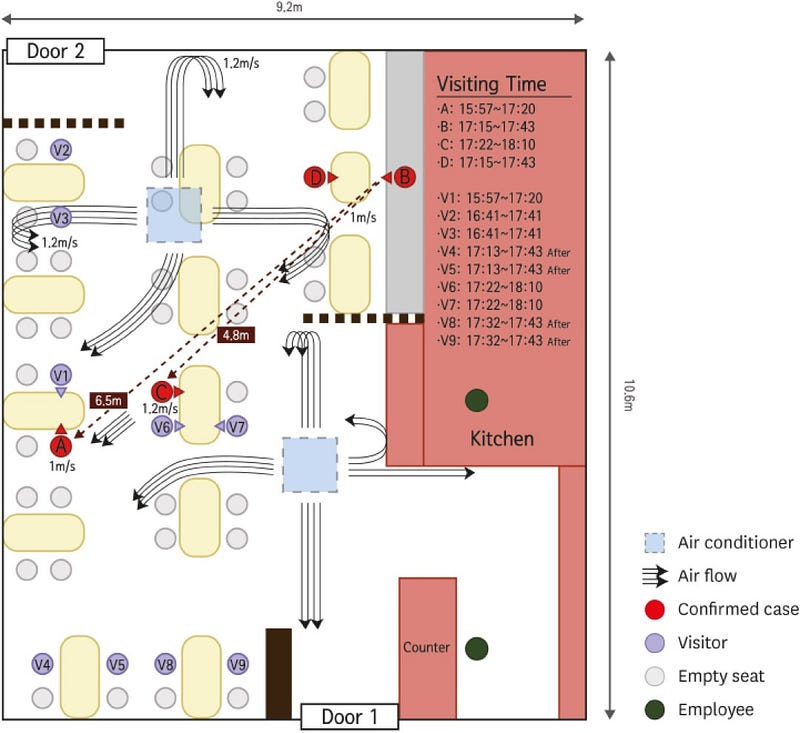
Lee and his team re-created the conditions in the restaurant — researchers sat at tables as stand-ins — and measured the airflow. The high school student and a third diner who was infected had been sitting directly along the flow of air from an air conditioner; other diners who had their back to the airflow were not infected. Through genome sequencing, the team confirmed the three patients’ virus genomic types matched.
“Incredibly, despite sitting a far distance away, the airflow came down the wall and created a valley of wind. People who were along that line were infected,” Lee said. “We concluded this was a droplet transmission, and beyond” 6.6 feet.
The pattern of infection in the restaurant showed it was transmission through small droplets or larger aerosols either landing on the face or being breathed in, said Marr, the Virginia Tech professor who was not involved in the study. The measured air velocity in the restaurant, which did not have windows or a ventilation system, was about 3.3 feet per second, the equivalent of a blowing fan.
“Eating indoors at a restaurant is one of the riskiest things you can do in a pandemic,” she said. “Even if there is distancing, as this shows and other studies show, the distancing is not enough.”
The study was published at a time when South Korea, like many other countries, is on edge amid a new wave of coronavirus infections, with daily case rates hovering around 600 in recent days. Seoul, the capital, this week began requiring restaurants to close by 9 p.m., limiting coffee shops to takeout only and forcing clubs and karaoke bars to shut down.
The research echoed the findings of a July study out of Guangzhou, China, which looked at infections among three families who dined at a restaurant along the flow of air conditioning at tables that were three feet apart, overlapping for about an hour. Ten of the diners tested positive for the coronavirus. Contact tracers in South Korea similarly mapped out a large outbreak at a Starbucks in Paju in August, when 27 people were infected by a woman sitting under a second-floor ceiling air conditioning unit.
Seung, of Partners in Health, said by retracing infection routes epidemiological investigators in South Korea had helped researchers worldwide better understand the coronavirus’ spread.
“I showed it to my team doing contact tracing in Massachusetts, and their jaws are dropping,” Seung said. “We know how hard it is to do something like that — it’s impressive.”
[embed]https://www.latimes.com/people/victoria-kim[/embed]
Victoria Kim is the Seoul correspondent for the Los Angeles Times. She previously covered state and federal courts, worked on investigative projects and reported on Southern California’s Korean community.
Republished by Michael de Groot.
The Tears Have Started
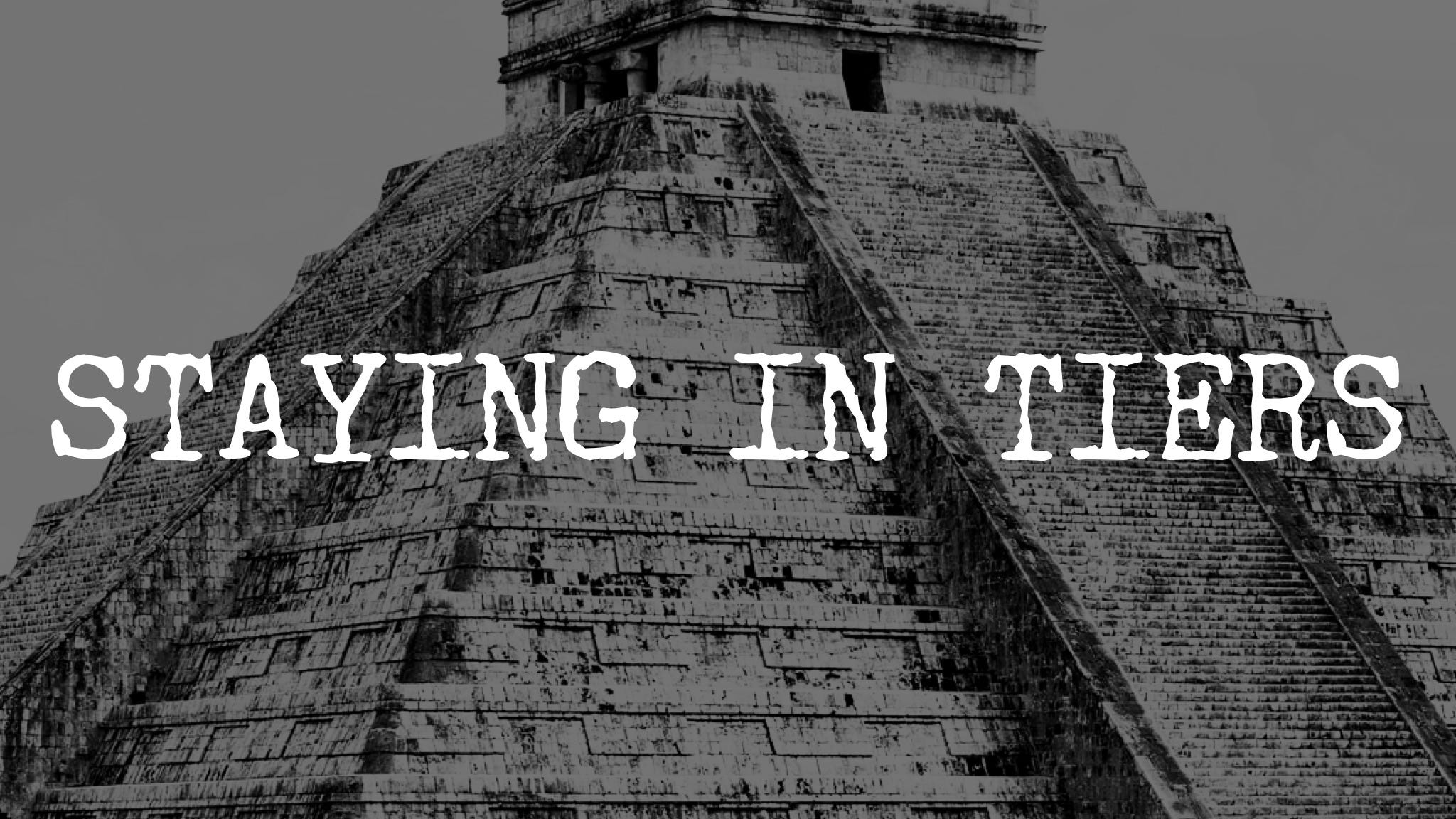
The UK government announced the lockdown tiers (tears) for England on Thursday 26 November 2020.
The difference being this time the tiers are tougher and the rule stricter, which in effect means that the majority of us in England only, like 55 million out of 67 million people, are still in a partial or even a full lockdown.
[embed]https://www.gov.uk/guidance/local-restriction-tiers-what-you-need-to-know[/embed]
Apart from the Christmas let up for 5 days, 23 December until 27 December, with the potential for massive virus spreading, the duration of the new tougher tiers is unknown. Considering that furlough pay for employees will continue until the end of March, it’s very likely that these new tiers will stay in place until then. We might be hopeful that the vaccine will save us, but my guess is it won’t as yet. First it has to be approved, yes as of today it hasn’t yet been approved, I bet some hurdles will need to be overcome there.
Secondly, it will be given to the most vulnerable citizens in society and we will have to evaluate how they react to it, could they get unnecessarily ill, it could delay things even more. Thirdly not everyone will want to be inoculated, at least 30% won’t and that includes me!
Inevitably we will get imposed rules by companies and maybe government to suggest that unless you have the vaccine your life will potentially be limited. No problem, I’m happy to live as a monk!
[embed]https://twitter.com/stayingaliveuk/status/1331658454365302786?s=21[/embed]
Throughout this pandemic I’ve predicted the way things would unfold and I’ve pretty much been right every single time. The main reason for this is the trend. People believe that when good news is delivered like the vaccine or numbers falling that we can get back to normal. The fact is the vaccine isn’t even being rolled out as yet, for god sake it hasn’t even been approved for roll-out!
The level of infections is 4 to 5 times higher compared to what we experienced in the UK in March and April. How can you possibly believe that this means we could relax rules? The trend also has been that infections spread first in the younger population and then spreads into the older population, the most vulnerable etc. So think about it, as students from universities, who have been seriously contagious, are being told to go home for Christmas and mix with their friends and relatives at home, the spread will start all over, leading to another spike in January and February, even before the vaccine is able to be rolled out.
[embed]https://www.gov.uk/guidance/local-restriction-tiers-what-you-need-to-know[/embed]
“The Trend is your Friend. The trend is your friend” is one of the best known sayings in stock market trading, although its message is incomplete. The full version should be, “The trend is your friend, until the end when it bends.”
https://education.howthemarketworks.com/the-trend-is-your-friend
My prediction has always been that we’re on a 3–5 year journey with the Pandemic and an even longer journey with the recession, which will be a 7–9 year journey. Society needs to be totally transformed to a new way of learning and working. We will definitely do more things online, which means learning and working will change forever. This means a massive impact on the way that high streets work too. We have been overstepped for many decades. Our parents and their parents never needed so much stuff in their lives as we do today.
It means more retailers, brands and shops will go bust and be removed from the high street. The biggest winner in the high street has been the internet and the biggest shop in the world is called Amazon. That’s where most people have turned to buy their stuff. Home delivery has exploded. The UK has always lead the way with online shopping and now it is likely to have a further exponential increase.
My advice is stay calm and carry on by being remote from other people. Become comfortable with you closest loved ones and your own company, because you will be with yourself and them for a very long time to come.
Stay well and be safe.
RNA vaccines: An introduction by PHG Foundation – University of Cambridge
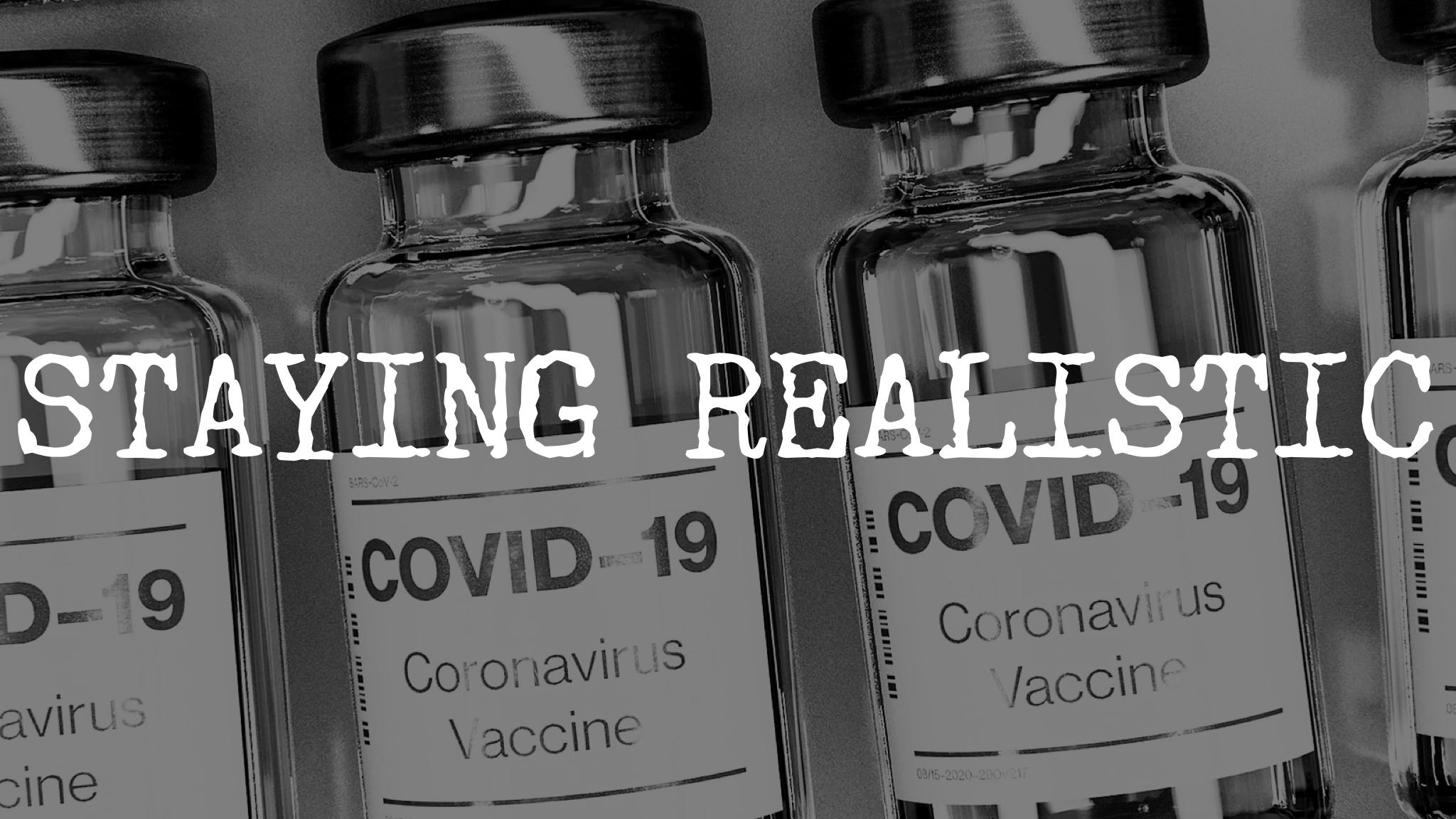
The following text contained within has been copied in it’s entirety from:
https://www.phgfoundation.org/briefing/rna-vaccines
RNA based vaccines, which are relatively quick and inexpensive to make and may be safer to use could herald more rapid control over the spread of infectious diseases, including COVID-19. This policy briefing summarises the essentials.
Policy briefing
Vaccination is one of the major success stories of modern medicine, greatly reducing the incidence of infectious diseases such as measles, and eradicating others, such as smallpox. Conventional vaccine approaches have not been as effective against rapidly evolving pathogens like influenza or emerging disease threats such as the Ebola or Zika viruses. RNA based vaccines could have an impact in these areas due to their shorter manufacturing times and greater effectiveness. Beyond infectious diseases, RNA vaccines have potential as novel therapeutic options for major diseases such as cancer.
Summary
Unlike a normal vaccine, RNA vaccines work by introducing an mRNA sequence (the molecule which tells cells what to build) which is coded for a disease specific antigen, once produced within the body, the antigen is recognised by the immune system, preparing it to fight the real thing
RNA vaccines are faster and cheaper to produce than traditional vaccines, and a RNA based vaccine is also safer for the patient, as they are not produced using infectious elements
Production of RNA vaccines is laboratory based, and the process could be standardised and scaled, allowing quick responses to large outbreaks and epidemics
Most current research is into RNA vaccines for infectious diseases and cancer, for which there are several early-stage clinical trials, there is also some early research into the potential of RNA vaccines for allergies
There is still a lot of work to be done before mRNA vaccines can become standard treatments, in the meantime, we need a better understanding of their potential side effects, and more evidence of their long term efficacy
What are RNA vaccines and how do they work?
Conventional vaccines usually contain inactivated disease-causing organisms or proteins made by the pathogen (antigens), which work by mimicking the infectious agent. They stimulate the body’s immune response, so it is primed to respond more rapidly and effectively if exposed to the infectious agent in the future.
RNA vaccines use a different approach that takes advantage of the process that cells use to make proteins: cells use DNA as the template to make messenger RNA (mRNA) molecules, which are then translated to build proteins. An RNA vaccine consists of an mRNA strand that codes for a disease-specific antigen. Once the mRNA strand in the vaccine is inside the body’s cells, the cells use the genetic information to produce the antigen. This antigen is then displayed on the cell surface, where it is recognised by the immune system.
How are RNA vaccines produced and administered?
A major advantage of RNA vaccines is that RNA can be produced in the laboratory from a DNA template using readily available materials, less expensively and faster than conventional vaccine production, which can require the use of chicken eggs or other mammalian cells.
RNA vaccines can be delivered using a number of methods: via needle-syringe injections or needle-free into the skin; via injection into the blood, muscle, lymph node or directly into organs; or via a nasal spray. The optimal route for vaccine delivery is not yet known. The exact manufacturing and delivery process of RNA vaccines can vary depending on the type.
Types of RNA vaccine
Non-replicating mRNA
The simplest type of RNA vaccine, an mRNA strand is packaged and delivered to the body, where it is taken up by the body’s cells to make the antigen.
In vivo self-replicating mRNA
The pathogen-mRNA strand is packaged with additional RNA strands that ensure it will be copied once the vaccine is inside a cell. This means that greater quantities of the antigen are made from a smaller amount of vaccine, helping to ensure a more robust immune response.
In vitro dendritic cell non-replicating mRNA vaccine
Dendritic cells are immune cells that can present antigens on their cell surface to other types of immune cells to help stimulate an immune response. These cells are extracted from the patient’s blood, transfected with the RNA vaccine, then given back to the patient to stimulate an immune reaction.
Benefits
Benefits of mRNA vaccines over conventional approaches are1:
Safety: RNA vaccines are not made with pathogen particles or inactivated pathogen, so are non-infectious. RNA does not integrate itself into the host genome and the RNA strand in the vaccine is degraded once the protein is made.
Efficacy: early clinical trial results indicate that these vaccines generate a reliable immune response and are well-tolerated by healthy individuals, with few side effects.
Production: vaccines can be produced more rapidly in the laboratory in a process that can be standardised, which improves responsiveness to emerging outbreaks.
Important challenges
The methods to make mRNA vaccines can be very effective. However, there are technical challenges to overcome to ensure these vaccines work appropriately:
Unintended effects: the mRNA strand in the vaccine may elicit an unintended immune reaction. To minimise this the mRNA vaccine sequences are designed to mimic those produced by mammalian cells.
Delivery: delivering the vaccine effectively to cells is challenging since free RNA in the body is quickly broken down. To help achieve delivery, the RNA strand is incorporated into a larger molecule to help stabilise it and/or packaged into particles or liposomes.
Storage: many RNA vaccines, like conventional vaccines, need to be frozen or refrigerated. Work is ongoing to reliably produce vaccines that can be stored outside the cold chain, since these will be much more suitable for use in countries with limited or no refrigeration facilities.
How could RNA vaccines be used for human health?
The most active areas of research into RNA vaccines are infectious diseases and cancer where there is research ongoing as well as early-stage clinical trials. Work into the use of RNA vaccines to treat allergy is still at the early research stage2.
Infectious diseases
Researchers using conventional approaches have struggled to develop effective vaccines against a number of pathogens, particularly viruses, that cause both acute (Influenza, Ebola, Zika) and chronic (HIV-1, herpes simplex virus) infection. RNA vaccines are being explored as a way to more rapidly and cheaply produce vaccines for these diseases, particularly in response to emerging outbreaks. Clinical trials have been carried out or are ongoing on mRNA vaccines for influenza, cytomegalovirus, HIV-1, rabies and Zika virus.
Case study: A recent study3 explored the use of programmable self-replicating RNA vaccines, delivered in a nanoparticle, for a range of infectious diseases including Ebola virus, H1N1 Influenza and Toxoplasma gondii, which were effective in mice. These vaccines can be manufactured in approximately one week and made against a range of diseases, demonstrating potential terms of swift response to disease outbreaks.
Cancer vaccines
Cancer vaccines are a form of immunotherapy, where the vaccine triggers the immune system into targeting the cancer. Both dendritic cell vaccines and personalised cancer vaccines, where the RNA sequence in the vaccine is designed to code for cancer-specific antigens, are being explored. Over 50 clinical trials are listed on clinicaltrials.gov for RNA vaccines in a number of cancers, including blood cancers, melanoma, glioblastoma (brain cancer) and prostate cancer.
Case study: Researchers sequenced the genomes of tumours from patients with melanoma. They made RNAs coding for mutant proteins, specific to the patients’ cancers, that could generate an immune response and made these into patient-specific vaccines. Eight out of thirteen people vaccinated stayed tumour free up to two years later.
RNA vaccines – who’s involved?
There are a number of companies and initiatives with an interest in RNA vaccines including the Merit Consortium, which is a European initiative to develop cancer vaccines, while UniVax is a research collaboration to develop a universal influenza vaccine. Companies such as Moderna Therapeutics, CureVac and BioNTech, are involved in phase I trials of RNA vaccines in cancer and infectious disease. These companies are also exploring the broader use of RNA therapeutics for diseases where important proteins are missing or defective and mRNA treatments could be used to express a functional copy of the protein.
Harnessing RNA vaccines for health – what are the challenges and key considerations?
Research and clinical trials: further research is needed to address technical hurdles such as vaccine stability and delivery. It is not yet certain which production method(s) are currently the best. Clinical trial data is limited – more long-term studies are needed to determine the effectiveness of RNA vaccines.
Production: vaccine production is currently small scale and it is not clear if current methods are capable of epidemic-level vaccine production.
Resources: the personalised approach for cancer vaccines is time and resource intensive and work is needed to determine if this approach is cost-effective.
Safety: better understanding of vaccine adverse effects is needed – these can include inflammation or autoimmune reactions.
Pardi N, Hogan MJ, Porter FW, et al. mRNA vaccines – a new era in vaccinology. Nat Rev Drug Discov. 2018; 17(4): 261–279.
Weiss R, Scheiblhofer S, Thalhamer, J. Generation and Evaluation of Prophylactic mRNA Vaccines Against Allergy. Methods Mol Biol. 2017; 1499: 123–139.
Chahal JS, Kahn OF, Cooper CL, et al. Dendrimer-RNA nanoparticles generate protective immunity against lethal Ebola, H1N1 influenza, and Toxoplasma gondii challenges with a single dose. Proc Natl Acad Sci USA. 2016; 113(29): E4133–42.
Sahin U, Derhovanessian E, Miller M, et al. Personalized RNA mutanome vaccines mobilize poly-specific therapeutic immunity against cancer. Nature. 2017; 547(7662): 222–226.
https://www.phgfoundation.org/documents/rna-vaccines-an-introduction-briefing-note.pdf
[embed]https://www.bbc.co.uk/news/health-54949799[/embed]
[embed]https://www.bbc.co.uk/news/health-54949799[/embed]
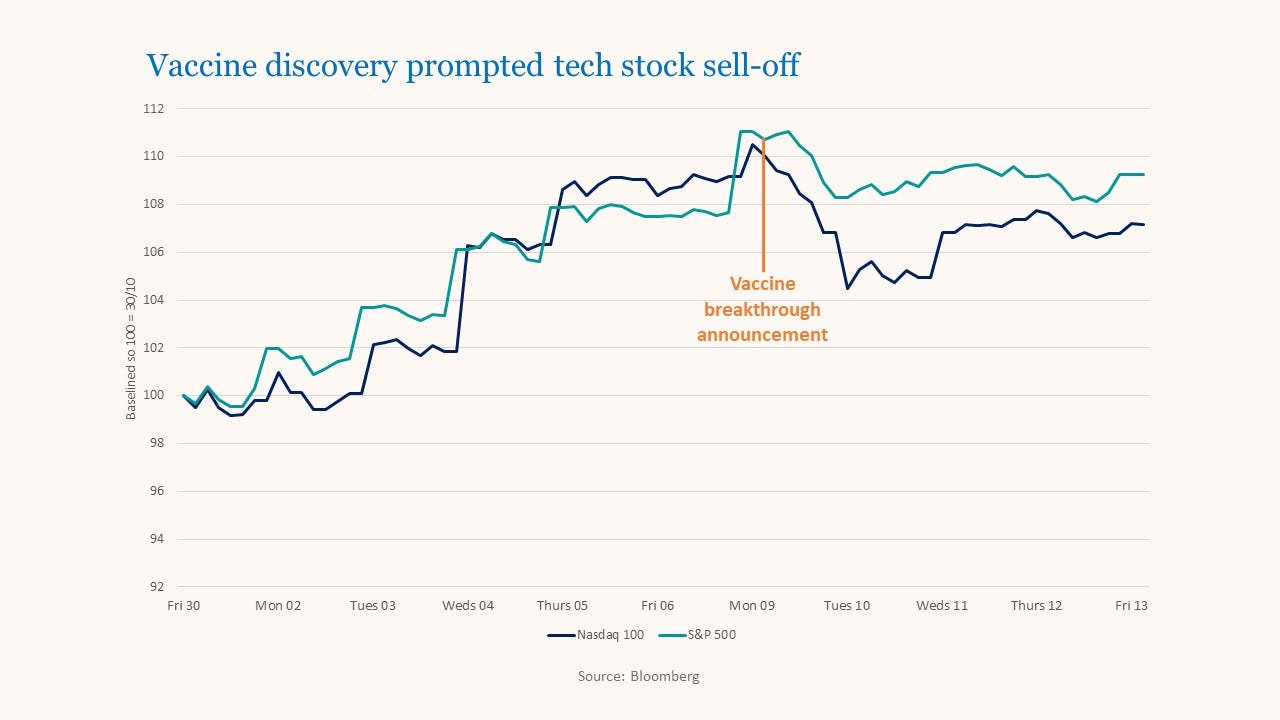
[embed]https://youtu.be/sV3p-Bh3SoE[/embed]
Things are moving fast, before me even being able to publish this article, another vaccine company Moderna came out with their announcement about their vaccine and how it’s 95% effective! Well this is the new arms race, that’s for sure.
[embed]https://www.bbc.co.uk/news/health-54949799[/embed]
Happy lockdown were ever you are in the world, because I’m sure there will be at least one in operation somewhere in the world for the next 3–5 years.
Success!
Definition of Insanity?
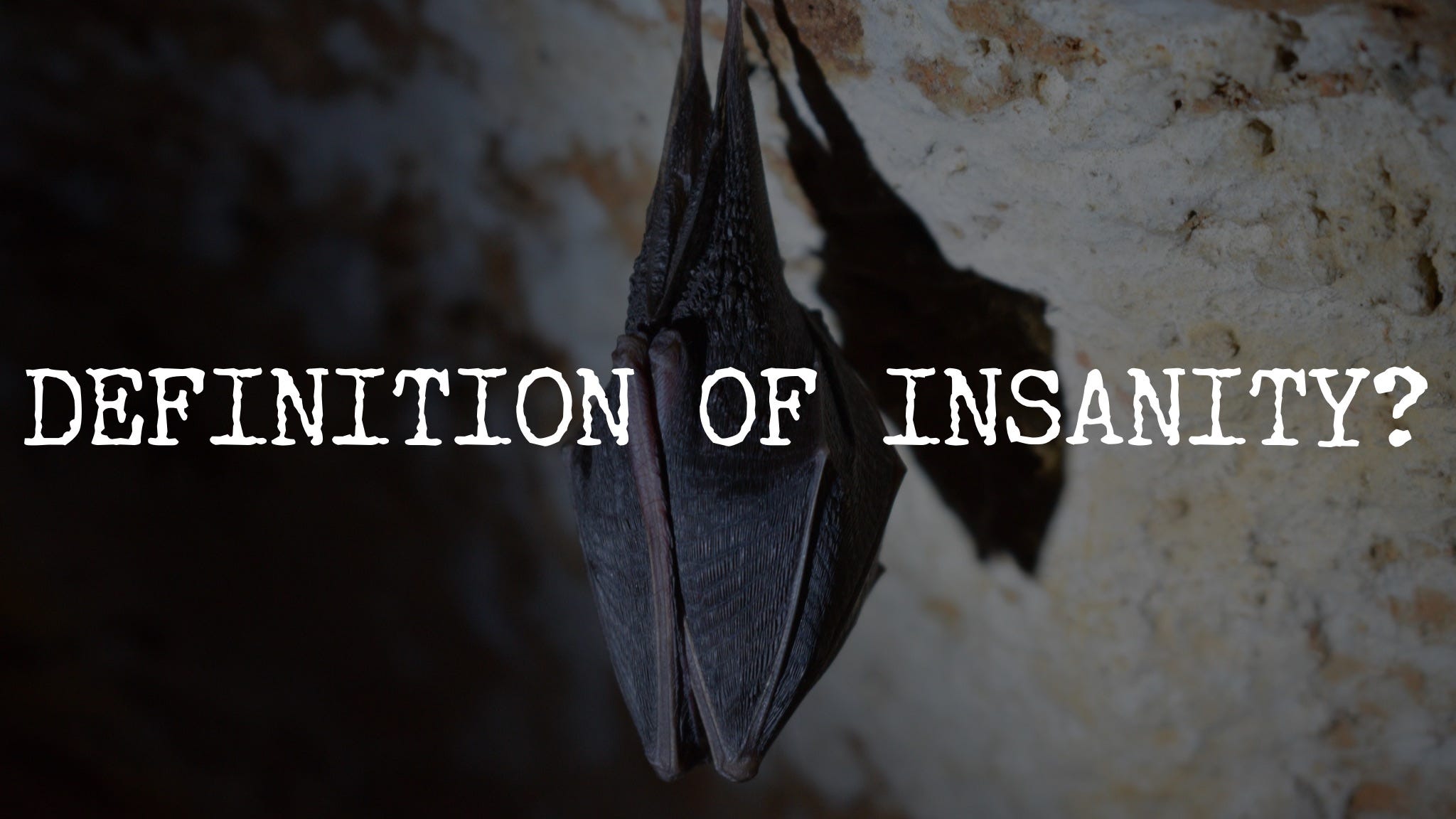
Saturday 31st October, Halloween 2020.
The Grim Reaper himself made an appearance on TV, to ruin people’s outlook for Christmas.
[embed]https://twitter.com/BorisJohnson/status/1322611182470127621?s=20[/embed]
Uk Government ministers have been defending the England Tier system and have been in denial for weeks that cases would run out of control across the country.
Yet again leaving it too late to take decisive action, meaning that England has to go on another lockdown, supposedly this time for just 4 weeks. I don’t believe for a second that 4 weeks will solve things. I predicted months ago that households will not be allowed to mix over Christmas and this is now 100% on track.
Human nature means that we’re always more optimistic about the future compared to how things truly will work out. This is an excellent and very detailed article about ‘Confirmation Bias’ in the main.
Chris Anderson of TED.com interviews Larry Brilliant, actually very early on during the Pandemic in April 2020.
And here is his 2006 Ted Talk.
When will the pandemic be over?
Consider the following scenario: a highly infectious, sometimes deadly respiratory virus infects humans for the first time. It spreads rapidly worldwide, and the WHO declares a pandemic. The death toll starts to rise and everyone is asking the same question: when will the pandemic end? Alex Rosenthal details the three main strategies governments can use to contain and end a pandemic in the Ted Animation below.
This Pandemic is a 3–5 year journey at least for the U.K. and the developed western world. Asia have culture already well established with fighting viruses, after all they had to contend with SARS-1 and have been used to wearing masks for decades. They also decided to close borders. The U.K. totally ignored this but and continue to believe that we have to keep the borders open for economic reasons.
The fact is that by keeping the borders open for so long means you are damaging the economy not helping it.
The U.K. Tory (Conservative) government are nearly as mad as the current US administration just a smudge away from being as insane as Trump and his fellow crooks.
Vaccines are not the panacea that everyone hopes for. 60% of the population are not prepared to inject their bodies with poisons. Any-bodies are something different providing they’ve been extensively tested on already very sick patients in hospital.
We have to become more realistic in our outlook instead of optimistic, which we are currently.
Plan for a long journey ahead with many false promises, many failures, more fake news etc.
Just be realistic!
Week 29: Sunday 11 October — Saturday 17 October 202
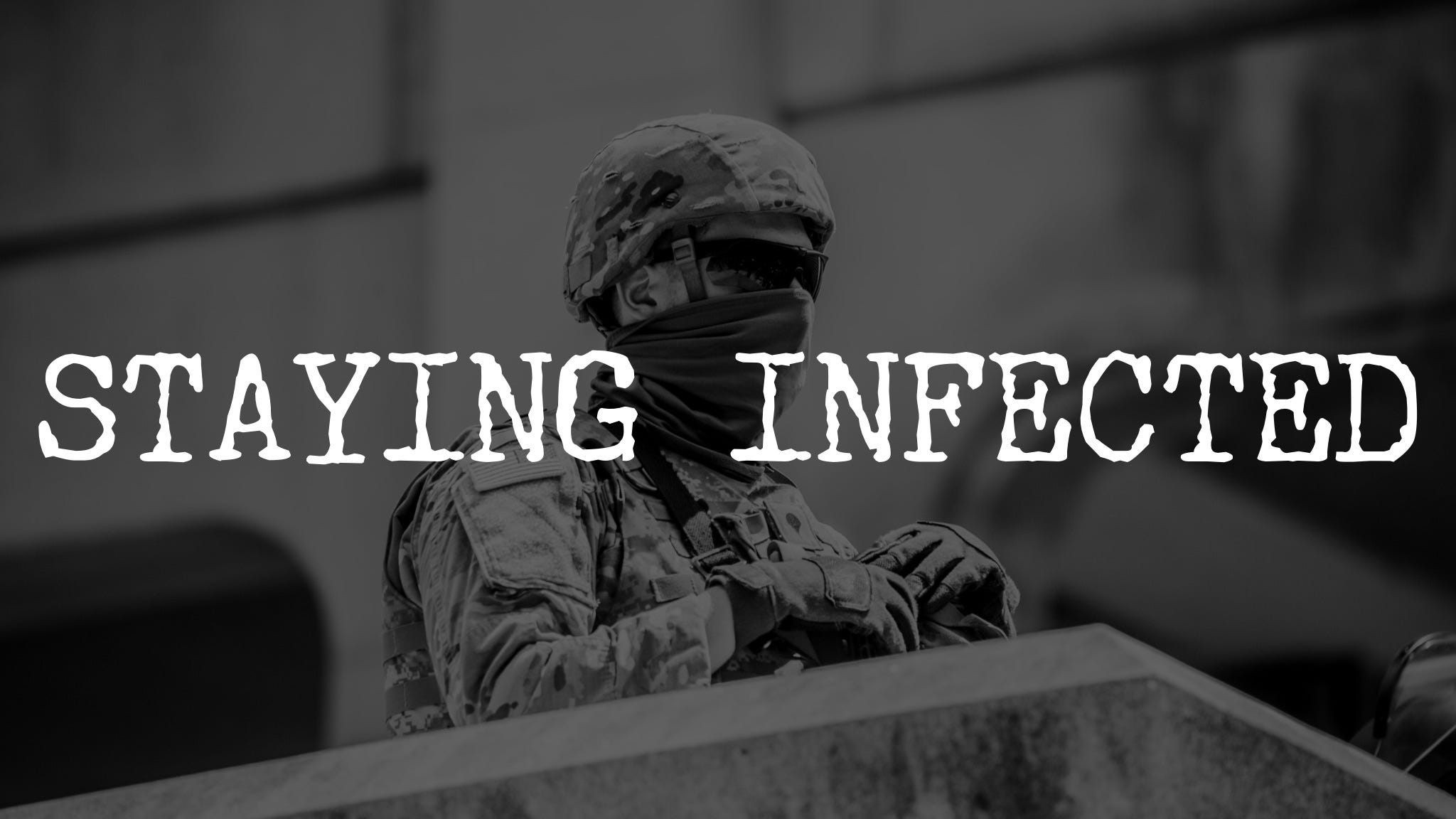
Sunday 11 October
[embed]https://coronavirus.medium.com/whats-a-superspreader-event-really-e60957342929[/embed]
The above article is fascinating, whilst the media is hysterical about Donald Trump’s ‘superspreader’ event, is there really such a thing?
Monday 12 October — Groundhog day!
First of all got this newsletter from my pension provider.
Last week began with President Trump being helicoptered back to the White House, after his discharge from hospital on Monday. After contracting COVID-19, the president spent just a few days in hospital before returning to work — attracting criticism for potentially doing so while still contagious. It’s hard to say what the impact has been, or will be, on the election result, but as the week ended there were signs that Joe Biden was pulling ahead.
Many observers are now predicting that Biden is a firm favourite to win the White House. FiveThirtyEight, a poll aggregator, put his chances at more than 86%. The probability of a ‘clean sweep’ (in which Democrats win both houses of Congress) has also increased — with some putting the likelihood at more than 60%.
Stock markets aren’t too downbeat about the prospect of a Biden victory, despite his promise to increase taxes. That’s partly because he’s also committed to a meatier set of coronavirus relief measures than the incumbent, suggests Mark Dowding of BlueBay Asset Management, co-manager of the St. James’s Place Strategic Income fund.
“Ordinarily, the threat of a Democratic ‘blue wave’ might weigh on risk appetite, but we don’t feel this is evident in 2020. When Trump was elected in 2016, it is estimated that the implied policy shift relative to Obama lifted stocks by approximately 10% thanks to the promise of lower taxes. Consequently, the threat of higher taxes under Biden might usually be extrapolated to suggest a 10% reversal; however, in the shorter to intermediate term, the fear of higher taxes to come is being offset by the promise of higher government spending in the year ahead.”
The stalemate in Washington surrounding the next set of economic stimulus measures has been a drag on markets recently. Despite both parties agreeing on the need for further measures, and despite pressure from leading figures such as the chair of the Federal Reserve, a deal hasn’t been agreed. Last week saw ups and downs in US stock markets as hopes of a deal rose and fell.
Meanwhile, in the UK, figures were released last week showing that the economy grew less than expected in August. GDP only increased 2.1% from July, which led to fears that the economic recovery is slowing down. “The government must stand ready to help firms navigate a difficult winter,” urged Suren Thiru, Head of Economics at the British Chambers of Commerce.
Rishi Sunak is now in a tricky position. The chancellor had begun the week with a pledge to “balance the books” during his speech to Conservative Party members, stressing the need to control national debt and spending. However, on Friday he announced a new local furlough scheme for workers in pubs, restaurants and other venues that are likely to face closure in the future.
Press reports suggested that last week’s Brexit trade talks have focused onto what seems to be the final sticking point: fisheries. Negotiators are trying to find a compromise ahead of a summit in Brussels this week, but although there is renewed faith that a deal is possible, it’s not done yet. It’s no secret that the political turmoil since the referendum result has made investors cautious about the UK. But, when viewed with a long-term investment horizon, it’s important to look beyond the headlines and focus on the fundamentals.
“I look at a lot of these headwinds for the UK and believe that a lot of them have the potential to abate over the next 12–18 months,” suggested Nick Kirrage from Schroders, manager of the St. James’s Place Managed Growth fund.
He adds: “People could perhaps look at some of these [UK] businesses, and the market itself, and ask if there is actually anything particularly structurally broken about the UK market, about business generation, about GDP growth, that means that it can’t do a bit better than it has? And I don’t see those impediments. So, I actually think that there’s a very, very low expectation bar built into the UK at the moment. And low expectations, and low valuations, we like.”
Finally, China’s markets reopened last week after a holiday. The country’s currency, the renminbi, rose against the dollar, and its CSI 300 Idex of stocks in Shanghai and Shenzhen closed higher on Friday. The country has managed to control the spread of COVID-19 quite well and has also enjoyed a better economic recovery than most. In the rest of the world, the picture is still mixed.
Two recent papers have highlighted some common risks facing pensions savers. The first, from the Financial Conduct Authority, reported that retirees are drawing more from their pension pots earlier on. Four in ten people who made regular withdrawals from their pension last year took more than 8%, it says1.
The second, by Aegon, finds that half of UK retirees surveyed had stopped working earlier than expected, whether due to job losses, poor health or other reasons2. Missing out on just a few years of saving, and being forced to draw down from a pension pot too early, or at too high a rate, raises the risk of running out of retirement income later in life.
“The way to retire early is to spend significantly less than you earn, save as much as you can and invest that money. Over 20 years you can create that financial independence — you’ve taught yourself to live off half your income, so you’ll need less in retirement,” says Rob Gardner, Director of Investments at St. James’s Place.
People saving for retirement will have been heartened to learn last week’s news about pension tax relief. HMRC has ruled out a review into the relief, which cost the Exchequer £38 billion in 2018/193, and has for a long time been seen as a cost-saving target for the government.
Savers can take some comfort from the news, says Claire Trott, Head of Pensions Strategy at St. James’s Place, adding: “However, changes are not something that we can rule out entirely due to the debts the government will need to repay in the future, and the large cost of tax relief.”
The value of an investment with St. James’s Place will be directly linked to the performance of the funds you select and the value can therefore go down as well as up. You may get back less than you invested.
The levels and bases of taxation, and reliefs from taxation, can change at any time. The value of any tax relief depends on individual circumstances.
1 Financial Conduct Authority retirement income market data 2019/20, September 2020 (collected from all regulated firms providing pension and retirement income products)
2 Aegon Retirement Readiness Survey 2020, June 2020 (1000 UK adults surveyed)
3 HM Treasury, Quarterly National Accounts, April 2020
Secondly, we’re now all into Covid19 tiers, except of course the super rich, this is just for us poor people, to herd us all like sheep, as we’ve not been able to do it ourselves!
Tuesday 13 October
Nothing to report today. 🥴
Wednesday 14 October
This is genius, except they missed one other person off the sign and that’s Rishi Sunak, the current Chancellor of the Exchequer!
[embed]https://twitter.com/Ben_Jonno/status/1316367127398559745?s=20[/embed]
[embed]https://twitter.com/FrancesABarrett/status/1316367038684762112?s=20[/embed]
[embed]https://twitter.com/BorisJohnson_MP/status/1316412850139693056?s=20[/embed]
And the UK is more divided then ever!
[embed]https://twitter.com/OverMyFedBody/status/1316402229600047104?s=20[/embed]
Thursday 15 October
Big news of the day certainly is not London and half of the UK population now in Tier 2 lockdown, the big news is a 5-minute Covid19 test. This would be the game changer we’ve all been hoping for. Is this operation moonshot Boris?
[embed]https://coronavirus.medium.com/whats-a-superspreader-event-really-e60957342929[/embed]
In other news, I wasn't feeling so well today. Nothing serious just a bit off.
Friday 16 October
The presidential race is hotting up!
[embed]https://twitter.com/KamalaHarris/status/1317152215031840773?s=20[/embed]
[embed]https://twitter.com/KamalaHarris/status/1317212491110371330?s=20[/embed]
Saturday 17 October
Oh dear Cambridge Analytica and that creepy CEO Alexander Nix have a lot to answer for. Like putting the craziest President ever in the White House!
[embed]https://twitter.com/carolecadwalla/status/1317277847195652100?s=20[/embed]
[embed]https://twitter.com/carolecadwalla/status/1317271632998793218?s=20[/embed]
[embed]https://twitter.com/carolecadwalla/status/1317275776815947776?s=20[/embed]
Michael out…
ps. This is the last week in the series. I have a week off next week and I’ve probably come to the end now of this. It’s exhausting trying to keep up with everything.
Your Mask
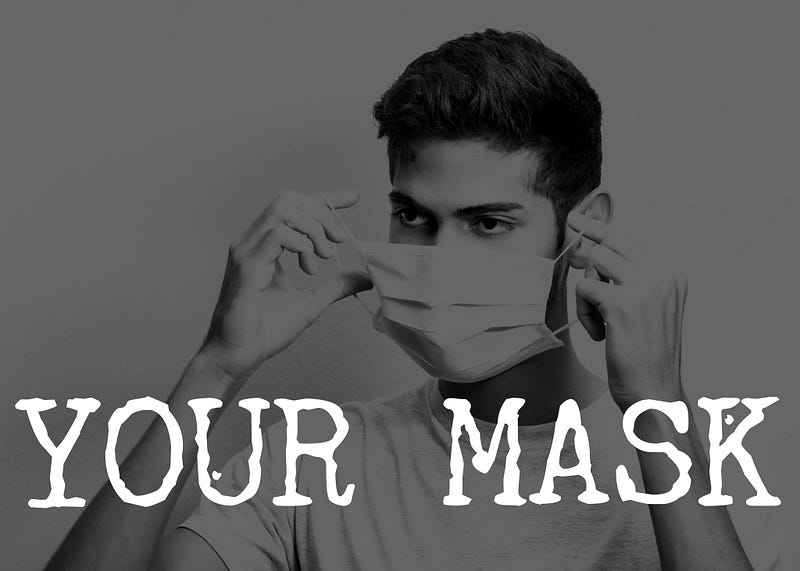
I left home without it.
Oh not to worry nobody will notice!
Oh my, look at him not wearing a mask.
He must have a dead wish!
Oh well it’s his life.
Oh and the lives of all those around him too!
No worries though, we need a few to die, the world is too crowded anyway…
But not in my family, I need to protect our elderly folks and those with complex health issues.
Yeah, but those over there can die, I don’t know them anyway.
Oh mind you, maybe they have families too, elderly folks and those with complex health issues too?
Maybe that’s not fair then.
Maybe I should remember to pick up my mask and indeed wear it!
Maybe if I want to save my family I should save other families too?
I left home today with my mask and I’m keeping one in my car and my pocket too just in case.
You never know who’s asymptomatic or who’s infected.
Or indeed if I am!
Ode to the Mask!
Week 28: Sunday 4 October — Saturday 10 October 2020
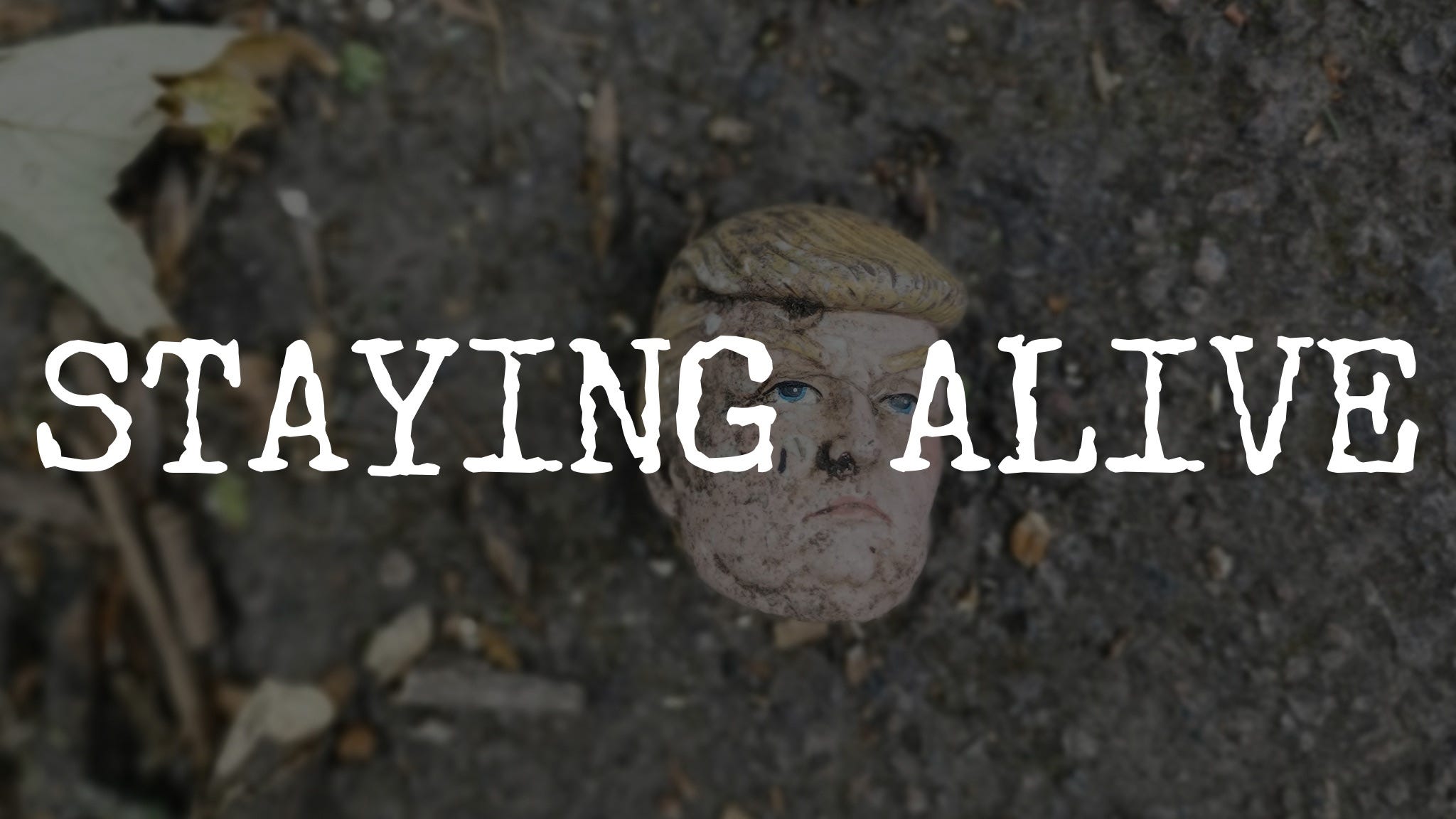
Image by Wordswag - words by Michael de Groot
Sunday 4 October
Yesterday, tweeted a video from the hospital where he was taken, to show that he is well. Of course nobody really knows what’s going on an his spin and puppet masters are well at work, to ensure the confidence in his health stays high. Trouble is nobody ever has questioned his mental health, which of course is way off.
Monday 5 October
…and then he decided, whilst still carrying the virus to go for a drive by outside the hospital to show his gratitude to supporters. What is this guy on? Oh yeah, they’ve supplied him with a cocktail of many different things. Best watch out he could get an overdose!
https://www.theguardian.com/us-news/2020/oct/04/trump-walter-reed-drive-by-visit-criticism
Enthusiasm like probably nobody has ever had! Too damn right Mr.!
Tuesday 6 October
And then the warrior returned, oh gosh!
And then telling everyone around the world, not to be afraid of the virus and after taking all these drugs, he’s feeling better then the past 20 years!
And after that more fake news, which violated Twitter’s rules again, so many times, so many time Mr President!
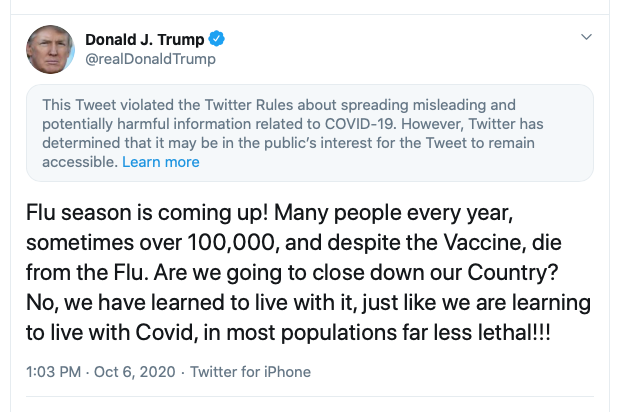
James Corden’s rendition of Paul McCartney’s maybe I’m amazed, what a shame it had to be about Trump. Never knew Corden could play the piano that well as well as get those high notes. Amazing indeed!
Wednesday 7 October
And all the drugs that Trump had everyone in the USA will get for free too. Yeah okay, fake news! Don’t believe me? Watch this report by James Corden.
Thursday 8 October
Nancy Pelosi is stepping up her tactics on Trump, will it work? Hell no but at least it is a good distraction from the Trump show!
The real Trump coming back to the Whitehouse speech.
Friday 9 October
And now he’s well enough to start spreading the virus yet again!
What’s that coming over the hill
Is it a monster? Is it a monster?
What’s that coming over the hill
Is it a monster? Is it a monster?
What’s that coming over the hill
Is it a monster? Is it a monster?
What’s that coming over the hill?
Saturday 10 October
A peaceful and lazy day, walking Pip the dog, catching up on John Wick 1 and 2, which means I can finally watch John Wick 3 on Netflix.
The world is still going completely mad, especially in the USA, ala DT.
Michael out…
Week 27: Sunday 27 September – Saturday 3 October 2020
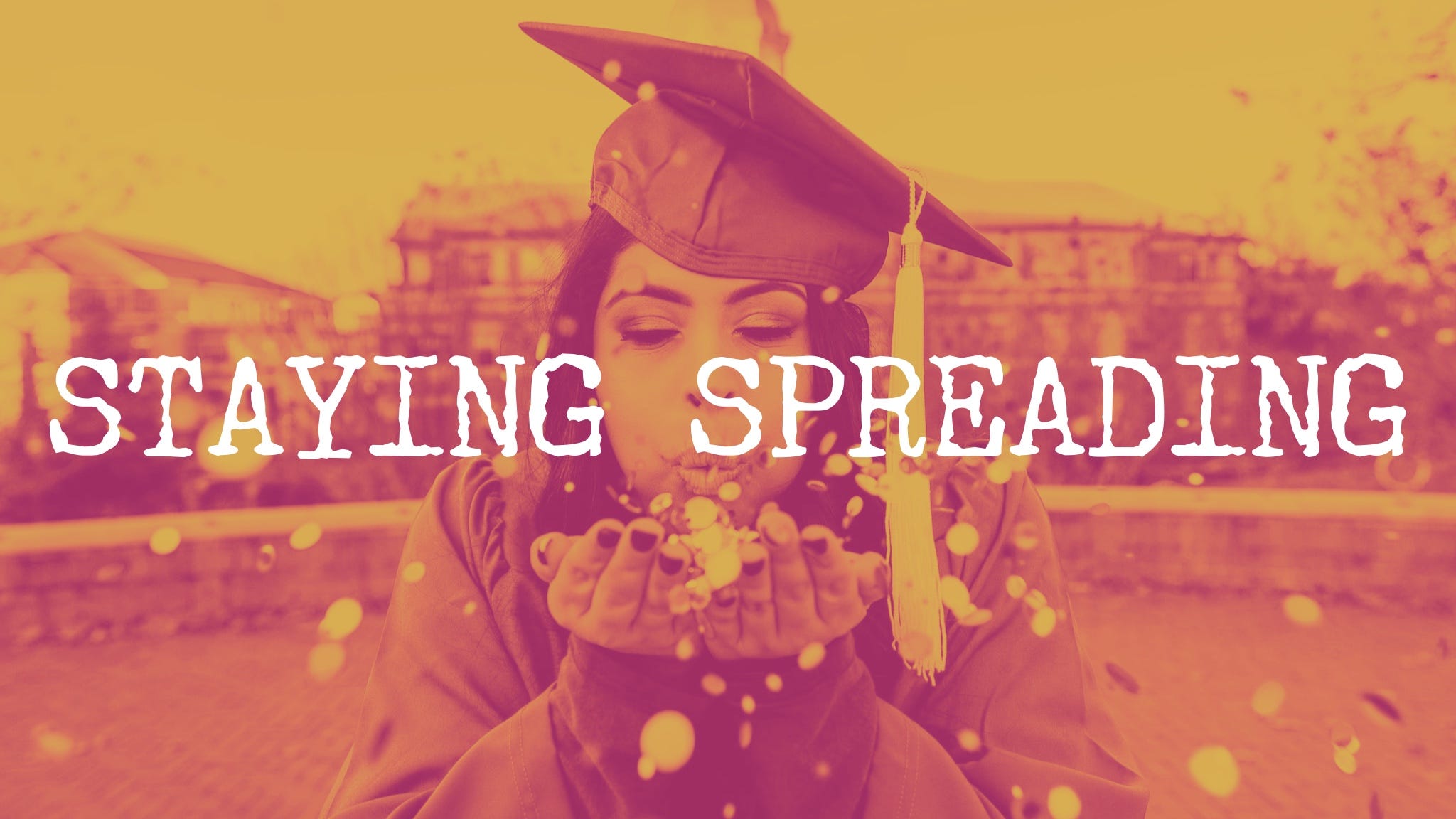
Sunday 27 September
A beautiful sunny and cold morning in the U.K. Seeing and hearing stories of students locked up inside Universities, being forced to isolate because they have got the dreaded COVID19 virus. The question is why have they gotten so close to people in the past to have been infected and then taken that infection to their Universities.
In the future I picture a time when citizens will have to prove that they are not carrying the virus before being allowed in to public places, we’re probably a few years away from that. It would solve a lot of issues in society that’s for sure. The virus has no timetable or plan to leave humans alone. Apart from a vaccine, which probably most people won’t take, we need other solutions in place for society to open without hesitation.
It’s like living in an episode of black mirror and it’s real.
[embed]https://twitter.com/davidlammy/status/1310142449801744385?s=21[/embed]
Technology and heating issues in the house and with Clair and her Mum were the order of the evening tonight. Anything to do with the full moon and asteroids passing earth?
Monday 28 September
The Key Takeaways From the Times’ Trump Tax-Return Investigation.
On Sunday, the New York Times published a massive investigation into President Trump’s tax returns, revealing years of aggressive write-offs, tax avoidance, and staggering losses. The report comes at an inopportune time for a president facing an uphill reelection battle and a potential investigation for tax fraud by the Manhattan district attorney. It won’t be the last one, either: the Times notes that the report just “offers an overview of [their] findings; additional articles will be published in the coming weeks.”
Below are the most important takeaways from the Times’ reporting into Trump’s financial stress and expansive debt.
Trump paid $0 in federal income taxes in ten of the last 15 years
Though the president has claimed that he has nothing to hide in the tax returns that he has refused to release to the American public, he probably won’t be thrilled by the Times’ disclosure that he has paid no federal income tax in ten of the last 15 years — and only 11 times in the last 18 years. Trump reported losing more money than he made in the years he did not pay, a detail that undermines his already-spurious claim that he is a business guru.
Trump only paid $750 in taxes in 2016
President Trump paid only $750 in U.S. taxes in 2016, the year he ran for president, then paid the same paltry sum in the first year of his presidency. In addition, according to the Times, that seems to only have happened because “his accountants appear to have carved out an allowance for a small tax liability” in those years, since Trump had enough tax credits to owe no taxes at all. For a little context, Vox’s Dylan Matthews notes that “a single adult would only need to make $17,900” to pay $750 in federal income taxes.
The amount he paid in U.S. taxes in 2017 was also far less than his businesses paid to some other countries overseas. Per the Times, Trump’s companies paid more than $145,000 in taxes to India that year, more than $156,000 to the Philippines, and more than $15,000 to Panama.
[embed]https://apple.news/AGY7edNO6R8mXGUqRSvUNGw[/embed][embed]https://twitter.com/heerjeet/status/1310351470210854915?s=21[/embed][embed]https://twitter.com/nytimes/status/1310325842535477248?s=21[/embed]
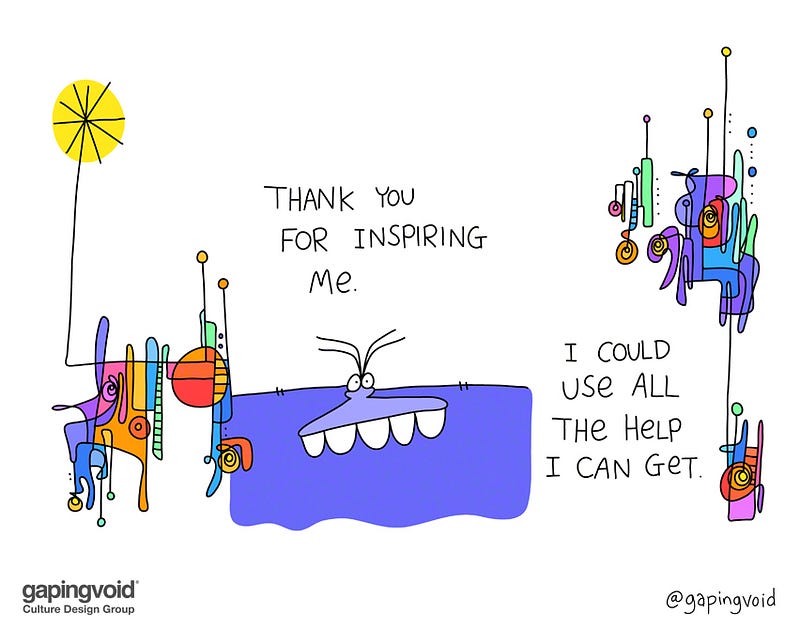
Reed Hastings, the CEO of Netflix, has a new book out, whose main gist is about corporate culture, namely, the one at the company he heads.
Hastings is known as an organizational genius as much as he is a product guy. Which is why Netflix is known for having a very strong, cut-throat culture.
From a mention in the New York Times:
“Strikingly, having the best people involves a regular ‘keeper test.’ If a manager won’t fight to keep an employee as an indispensable star, the solution is a generous severance package. In place of annual reviews — salaries are adjusted based on the market, not individual performance — a system of continuous written and live, 360-degree feedback serves a remarkable degree of organizational transparency. The result is a workforce with high ‘talent density’ who can be trusted to use their own judgment.”
The thing to remember is, a single culture won’t be for everybody, no matter how good the company is, no matter how much you’re paying them. The ‘keeper’s test”, say, might be a bit much for your average employee, but Hastings doesn’t want average employees. He wants a certain type of high-performing, semi-autonomous person who can handle a lot of heat.
But at least he’s upfront about it. At last, he openly says to potential employees, “This is who we are, this is how we operate, we may not be for you”.
At least there’s no mystery as to what the culture actually is.
So at least there are no real surprises.
Which makes the culture even more powerful.
The Manchester UK mayor was on the radio this morning and called for the government to speed up ‘tiers’ in relation to Covid19 and local lockdowns in the UK. He also talked about Manchester drinkers being kicked out of pubs pouring into supermarkets to buy alcohol and continuing the party in the streets. This should all work out very well, I’d say?!
It inspired me to share this tweet below.
[embed]https://twitter.com/stayingaliveuk/status/1310499156054736896?s=21[/embed]
Tuesday 29 September
Nothing to report!
Wednesday 30 September
The ongoing Covid-19 vaccine race is one of the most closely watched science experiments of the pandemic. This week, I interviewed a mother and son who are both participating in clinical trials for Moderna’s Covid-19 vaccine. They shared the ins and outs of what the experience is like (including an adverse reaction and quick recovery) as well as misconceptions about the vaccine they would like put to rest.
“These trials are happening very quickly, but they’re happening,” they said. “They’re real trials. And we’re real people in them.”
READ: What It’s Like to Participate in a Covid-19 Vaccine Trial
Also, indoor dining is commencing in many places across the country. Here’severything you need to know about the risks of eating indoors at restaurants. (FWIW: I will not be dining indoors anytime soon.)
Here’s what’s new:
- Covid-19 deaths pass 1 million worldwide: There are over 7.1 million confirmed cases in the U.S. and over 33.7 million confirmed cases worldwide. So far, over 206,000 Americans have died from Covid-19. Read more.
- Disney to lay off 28,000 workers at its theme parks: The company says limits on attendance and other Covid-19 restrictions are the reason it is cutting the jobs of workers at the parks in California and Florida.
- The NFL has a Covid-19 outbreak: Three players and five staff members on the Tennessee Titans have tested positive after playing the Minnesota Vikings on Sunday. Read more.
- New York state’s positivity rate is slightly up: The statewide positivity rate rose over the weekend, with rates slightly above 1%. Hospitalizations have also risen over the last several days, according to state statistics.
- Rio cancels Carnival for first time in a century: In response to Covid-19, Rio de Janeiro delayed its annual Carnival parade for the first time in 108 years.
Follow our Medium Coronavirus Blog for regular updates, and read some of the essential stories we’ve curated below.
Be well,
Alexandra Sifferlin
Editor, Medium Coronavirus Blog
The Real Facebook Oversight Board, which has Carole Cadwalladr and Kara Swisher
https://www.facebook.com/fboversight/videos/339732537102658/
Thursday 1 October
It’s a blur…
Friday 2 October
https://twitter.com/realdonaldtrump/status/1311892190680014849?s=21
What a shame!
Oops he’s obese and elderly, it could end badly. 🦠🥴😷
Saturday 3 October
Washing, cleaning, Netflix, TV and zzzzzz….
Michael out…
Week 26: Sunday 20 September – Saturday 26 September 2020
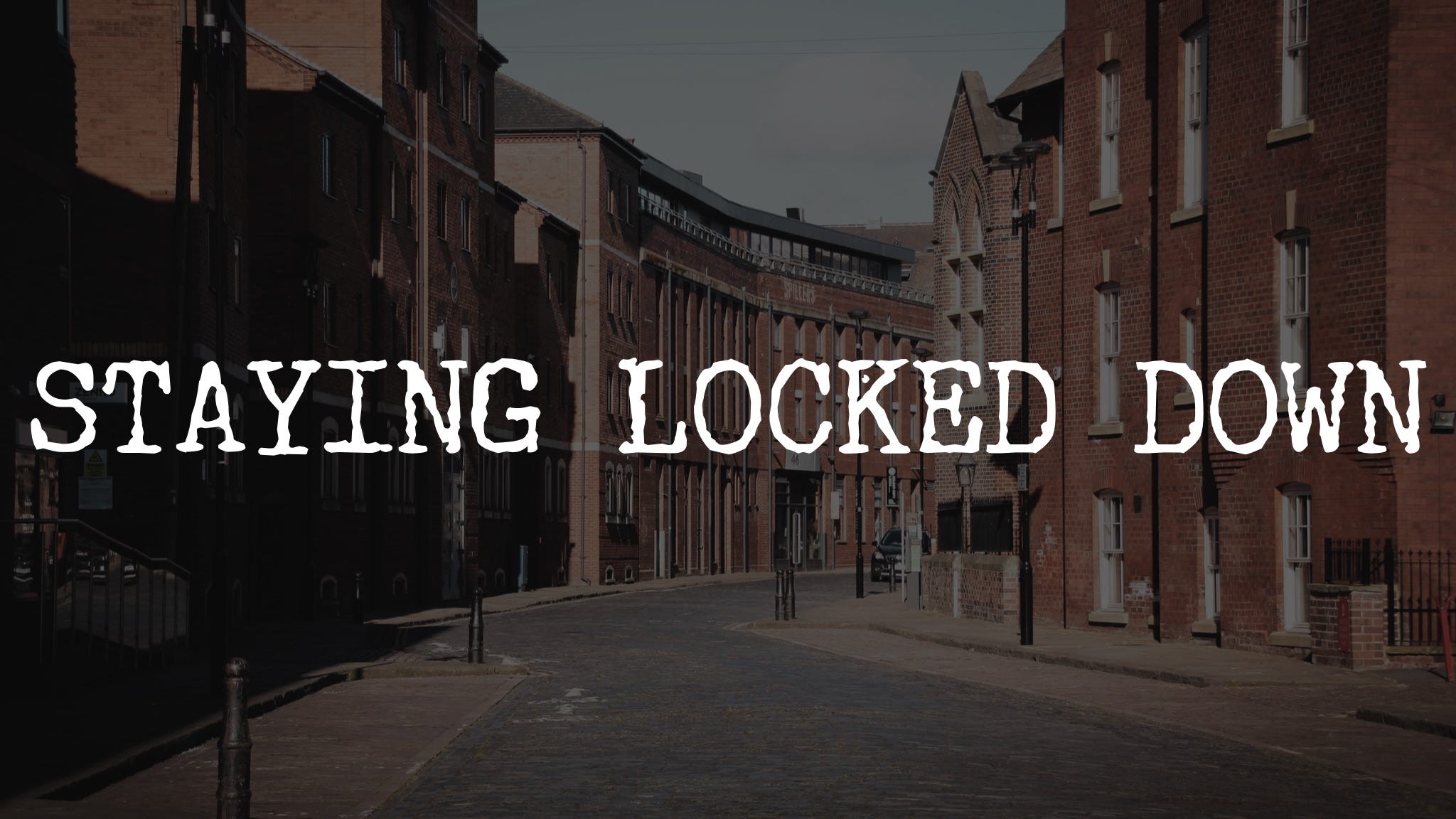
Sunday 20 September
[embed]https://twitter.com/karaswisher/status/1307564919617921025?s=20[/embed]
I believe the tweet above by Kara Swisher, my favourite reporter on Tech, is about Oracle being in the race to buy TikTok. A strange initiative by Donald ‘Duck’ Trump. And there partners will be Walmart? Who would have guessed that!
Monday 21 September
I’m curious about this tweet. Surely if your cat or dog scratches the loo door, it means they need some training? Worth reading the full thread if you wish?
[embed]https://twitter.com/mistywoman1/status/1308350886264086528?s=21[/embed]
Tuesday 22 September
Coronavirus: Boris Johnson sets out new restrictions to last ‘perhaps six months’
By Jessica Elgot – Guardian – First published on Tue 22 Sep 2020 12.52 BST.
PM announces 10pm closing for pubs, a ban on indoor team sports and new weddings curbs.
Boris Johnson sets out new Covid-19 restrictions at ‘perilous turning point’ for UK. The UK is at a “perilous turning point” and must act, Boris Johnson has told MPs, announcing new restrictions for England including slashing the size of wedding celebrations and bans on indoor team sports, as well as a return to home working. Speaking in the Commons on Tuesday, Johnson announced a ban on indoor team sports, such as five-a-side football, and said plans for a partial return of sports fans to stadiums from 1 October had been “paused”. Wedding celebrations will be limited to just 15 guests, half of the number previously permitted, though funerals will be allowed to go ahead with up to 30 mourners.
Masks will become mandatory for retail and hospitality staff, as well as for passengers in taxis – a key demand of the mayor of London, Sadiq Khan, who spoke to Johnson on Tuesday morning. The prime minister said the restrictions may be in place for “perhaps six months” and warned there could be no complacency. “After six months of restrictions, it would be tempting to hope the threat has faded and seek comfort in the belief that if you have avoided the virus so far then you are somehow immune,” he said.
“That sort of complacency could be our undoing. if we fail to act together now, we not only put others at risk but jeopardise our own futures with the more drastic action that we will inevitably be forced to take.” As well as a 10pm closing time for pubs, bars and restaurants in England which was announced overnight, takeaway collections will also be closed from 10pm though deliveries will be allowed to continue, and pubs will only be allowed to offer table service, which will be enforced by law. Venues will be required by law to enforce the “rule of six” and social distancing.
The rule, which comes into force on Thursday, will mean venues must shut their doors at 10pm, rather than just call for last orders. “This is by no means a return to the full lockdown in March, we are not issuing instructions to stay at home,” Johnson said, stressing that schools and businesses should remain open. “But we are once again asking office workers who can work from home to do so,” he said, though stressed that key workers should continue to attend workplaces.
Johnson said enforcement would be set up and there would be extra funding to provide a greater police presence on streets, including “the option to draw on military support where required to free up the police”. A Downing Street spokesman said the armed forces would not be involved in enforcement and would only step in to free police officers from other routine duties, such as office work or guarding sensitive sites.
Michael Gove, Cabinet Office minister, earlier confirmed what he described as “a shift in emphasis” back towards home working after weeks of news headlines where ministers exhorted workers to get back into city centre offices. Downing Street has said that MPs will be expected to continue in their current arrangements but targets for civil servants to return en masse to Whitehall will not be continued.
The new measures come after a weekend of tense debate among cabinet ministers and scientists and are softer than those mooted in advice from government scientific advisers in recent weeks, which had included a two-week full lockdown as a “circuit-breaker”. The prime minister emphasised the restrictions were likely for the long term. “We will spare no effort in developing vaccines, treatments, new forms of mass testing but unless we palpably make progress we should assume that the restrictions that I have announced will remain in place for perhaps six months,” he said.
“For the time being, this virus is a fact of our lives and I must tell the house and the country that our fight against it will continue.” Johnson said there was still cause for some optimism in the battle against the virus and promised much of normality could be restored by spring. “Science is helping us every day. Dexamethasone, trialled in this country, is now reducing the numbers of death. We have the prospect of a vaccine,” he said.
“And all the medical guidance I have is that by next spring things will be vastly, vastly improved. I’m not going to deny for a minute that things are going to be tough for our country and for our people for months to come. But we will get through it, and we will get through it well.” Khan welcomed the additional new measures but said the capital could still need extra restrictions.
“They discussed the rapidly worsening situation in London, including increasing ICU admission rates, and the need to go further now to prevent a disastrous full lockdown in future including mandatory face coverings for hospitality workers and more widespread wearing of face coverings,” a spokesman for the mayor said. “It is clear that London has unique needs and challenges and additional measures need to be examined which are suitable for the capital.”
Wednesday 23 September
Some tweets an stuff.
[embed]https://twitter.com/timmckenna5/status/1308363319477231622?s=21[/embed]
This is definitely brilliant, next time you go to the shop bring a tape measure.
[embed]https://twitter.com/rachelparris/status/1308380355959939077?s=21[/embed]
I have one of these tape measures, must bring it with me in the car, you never know when you need to tell someone to stay away from you!
[embed]https://twitter.com/nik1p/status/1308390652498116610?s=21[/embed]
[embed]https://twitter.com/gwynnemp/status/1308383388240351232?s=21[/embed]
We will never forget what this guy did for this country. He will also carry this moment to his grave. Just one man who was responsible for the 2nd wave because everyone decided that if it’s okay for him, then it’s okay for me to not follow the rules. 🥴
Well the analysts are having a field day with Covid19. Now there’s another ‘massive’ study suggesting that the virus mutates and is evolving, just like a proper enemy, an invisible enemy that needs to be destroyed.
[embed]https://apple.news/AIjJDzmPwRhKq_spnIcNWxQ[/embed]
Thursday 24 September
And here’s a thoughtful moment by yours truly!
[embed]https://twitter.com/stayingaliveuk/status/1308812911503171584?s=21[/embed]
UK police intercept huge drug haul hidden in fruit
LONDON (Reuters) — British police said on Wednesday they had discovered a tonne of cocaine hidden in a consignment of fruit which was being smuggled into the country from South America.
Detectives said the “huge” haul, which they valued at 100 million pounds ($128 million), was found at the port of Dover in southeast England in pallets unloaded from a boat.
Two men, aged 40 and 64, were arrested on suspicion of importing class A drugs. The seizure was part of an operation launched after police infiltrated an encrypted communications service used by criminals.
“This operation has prevented a large amount of cocaine from making it on to our streets, we estimate that once adulterated and sold it could have had a street value of up to £100 million,” said Nikki Holland, the National Crime Agency’s Director of Investigations.
Reporting by Michael Holden, Editing by Paul Sandle.
Did an asteroid give us a warning from the heavens?
[embed]https://twitter.com/asteroidwatch/status/1308744726208602112?s=21[/embed]
Scientists at the U.S. space agency NASA say a small asteroid — roughly the size of a bus — passed close to Earth on Thursday, flying just 22,000 kilometers above the surface, within the orbit of geostationary satellites that ring the planet.
While the proximity to Earth might raise alarm, scientists at NASA’s Jet Propulsion Laboratory (JPL) in Southern California said even if the asteroid had entered the earth’s atmosphere, it almost certainly would have broken up and become a bright meteor.
The asteroid, known as 2020 SW, is about five to ten meters wide and was first discovered on September 18 by the NASA-funded Catalina Sky Survey in Arizona.
NASA’s Center for Near-Earth Object Studies (CNEOS) — part of the JPL — then did follow-up observations and confirmed its orbital trajectory, ruling out any chance of impact.
CNEOS director Paul Chodas says an object this size, this close to earth, is not uncommon. He says, “In fact, asteroids of this size impact our atmosphere at an average rate of about once every year or two.”
After passing the Earth, the asteroid will continue its journey around the Sun, not returning to Earth’s vicinity until 2041, when NASA says it will make a much more distant flyby.
The space agency says they believe there are over 100 million small asteroids like 2020 SW, but they are hard to discover unless they get very close to Earth.
Friday 25 September
The moment when Trump hides behind pillars because the crowd is booing him, oh my god, this is the dictator called Trump!
[embed]https://twitter.com/kevinliptakcnn/status/1309131222589865984?s=21[/embed]
Saturday 26 September
I admire all investigative journalists and one I admire the most is Carole Cadwalladr. She with other journalists managed the dirty tricks campaign by Cambridge Analytica and now she and others are putting together their own Facebook oversight board. You can read the report via the link below.
[embed]https://apple.news/AIjJDzmPwRhKq_spnIcNWxQ[/embed]
Some of Facebook’s most vocal critics are tired of waiting for its independent oversight board — so they’re starting their own.
A group of about 25 experts from academia, civil rights, politics and journalism announced Friday that they have formed a group to analyze and critique Facebook’s content moderation decisions, policies and other platform issues in the run-up to the presidential election and beyond.
The group, which calls itself the Real Facebook Oversight Board, plans to hold its first meeting via Facebook Live on Oct. 1. It will be hosted by Recode founder Kara Swisher, a New York Times contributing opinion writer.
Facebook is still working on creating its own oversight board, first described in April 2018 by CEO Mark Zuckerberg as an independent “Supreme Court” for content moderation decisions. Facebook’s board won’t launch in time to make any decisions during the presidential race. Its panel of 20 experts is scheduled to start reviewing cases in October, but it will have up to 90 days to make decisions.
[embed]https://twitter.com/carolecadwalla/status/1309484767872782340?s=21[/embed]
The crook called Mark Zuckerberg.
[embed]https://twitter.com/fboversight/status/1309476123064107010?s=21[/embed]
Michael out
Week 25: Sunday 13 September — Saturday 19 September 2020
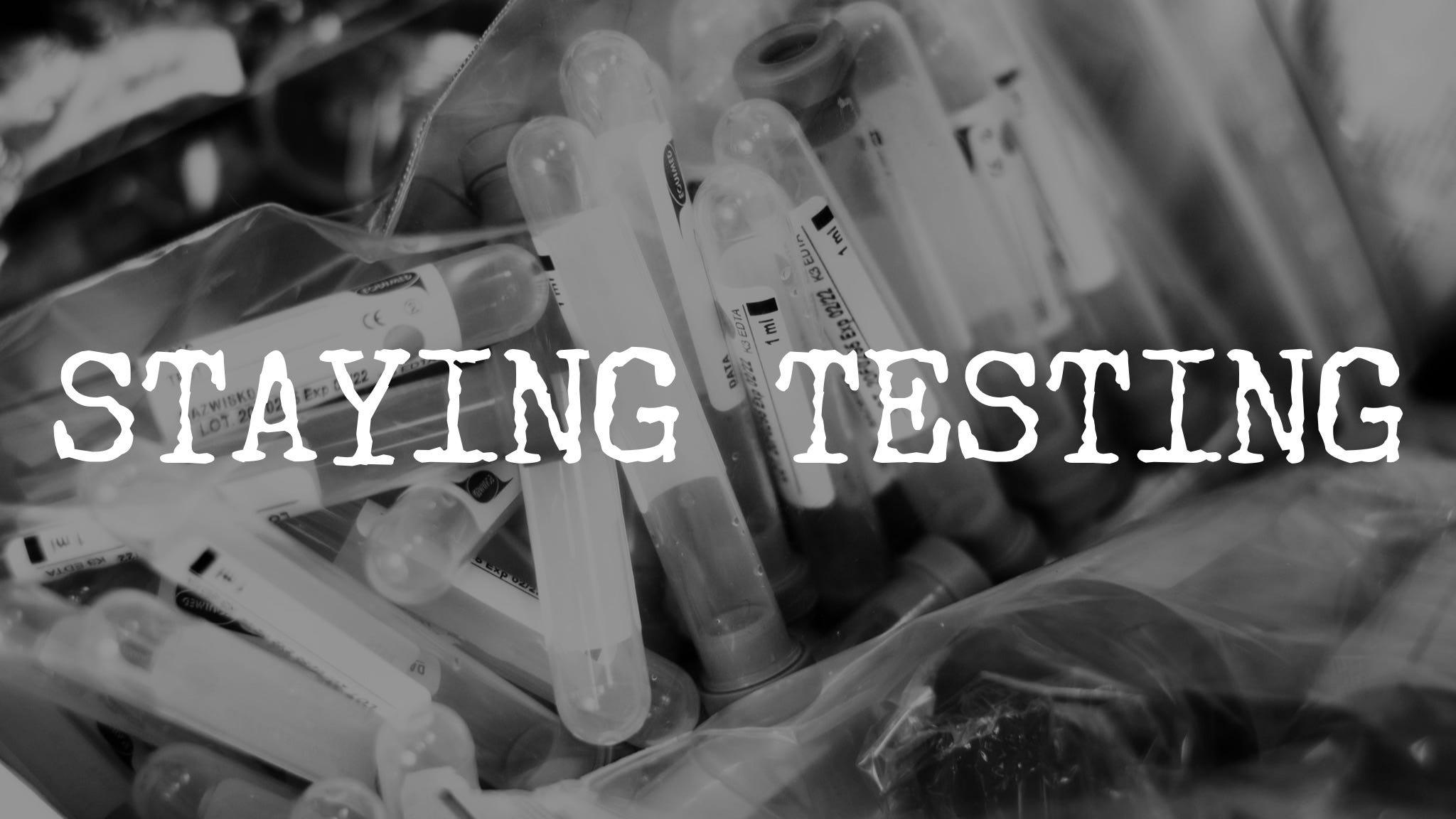
Sunday 13 September
We had brunch in the Pear Orchard again in the countryside. Many calories, the utensils in wood are terrible, must remember to take our own cutlery next time, but it was a delicious veggie breakfast. On the way home we stopped off to pick up some grasses, plants for narrow border on the front drive, instead of a large and obstructive privet hedge, which we needed to dig out.
Unfortunately Clair decided to forgo wearing garden gloves and snipped her hand quite deeply with some garden clippers, ouch, enough to make me feel faint and weak in the knees. she had to administer her own first aid.
My brother Jim called to discuss the bombshell announcement that my twin sister is divorcing her husband.
After that a quiet rest of the afternoon.
Monday 14 September
What’s clear to all citizens on planet earth is that testing for Covid-19 is the only way we can manage the pandemic in some way and keep as many of our vulnerable people safe. Because we never anticipated such a virus spreading across the earth, we’re not prepared. The latest news that was announced last week in relation to the UK government’s moonshot, which assumes that we will be able to have testing at home, which takes just 20–90 minutes. This would be the game changer the world needs. Being able to test yourself at home would ensure that you can go about your business as needed.
[embed]https://youtu.be/8lbXuX7Dshg[/embed]
The $88 Trillion World Economy in one chart.
[embed]https://twitter.com/RicardoSGulko/status/1305601187937386497?s=20[/embed]
Tuesday 15 September
It’s my Birthday!!
A fairly peaceful day and then we went for a meal out, only the second meal out since the reopening after lockdown. We were just 6 of us, so that was okay. Very bizarre experience with the waitresses. They were wearing screen shields and were very awkward in terms of handing over plates and drinks. Anyway, it was a nice enough meal.

It was also my twin sister’s birthday, who celebrated it in London with her daughter who had a new baby boy, Jude!
Wednesday 16 September
In other news, is there other news? Covid continues her destructive force from all sides.
[embed]https://twitter.com/doctor_oxford/status/1305752256646721537?s=21[/embed]
If all else fails get your frustration out on the drums!
[embed]https://twitter.com/nandi_bushell/status/1301636743368790016?s=21[/embed]
Thursday 17 September
Operation Moonshot?
Do we trust them? NO
Do we believe them? NO
Will it happen? Probably NOT!
But they still announced it and I wanted to capture it.
[embed]https://twitter.com/stayingaliveuk/status/1306552299695804416?s=21[/embed]
Friday 18 September
Will this be the story that will finally cause the downfall of Donald Trump? Unlikely, but they are trying.
[embed]https://twitter.com/paullewis/status/1306531199679188992?s=21[/embed]
Local lockdown measures all around us! We live in an area called Wyre Forest, based in Worcestershire, U.K. The no of Covid case has been climbing steadily over the past few weeks, just like across the rest of the country. we were at just between 6–8 for months and all of a sudden, we’re spiking between 18–24 cases per 100,000. But the counties all around us are even higher, which is quite worrying indeed.
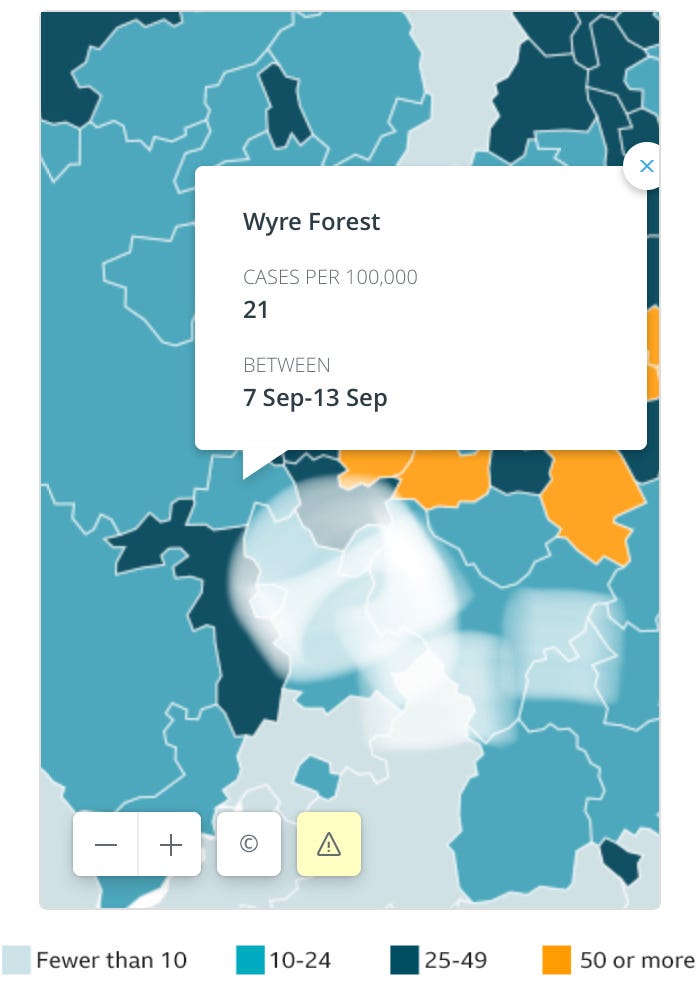
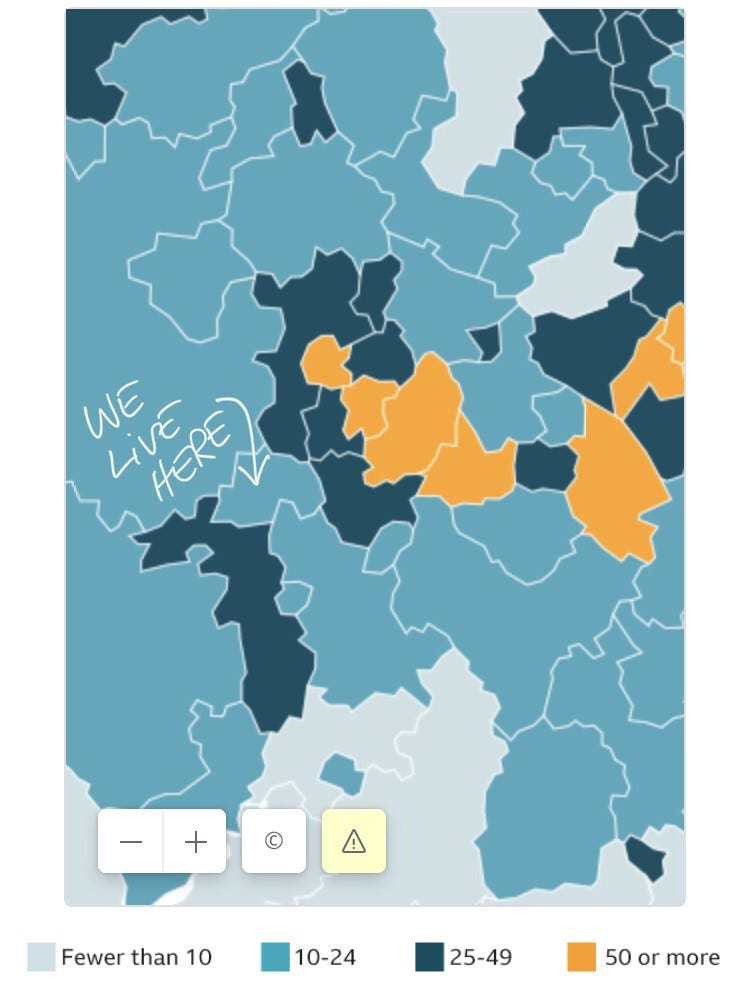
Saturday 19 September
Basically house cleaning, nothing else to report.
Michael out…